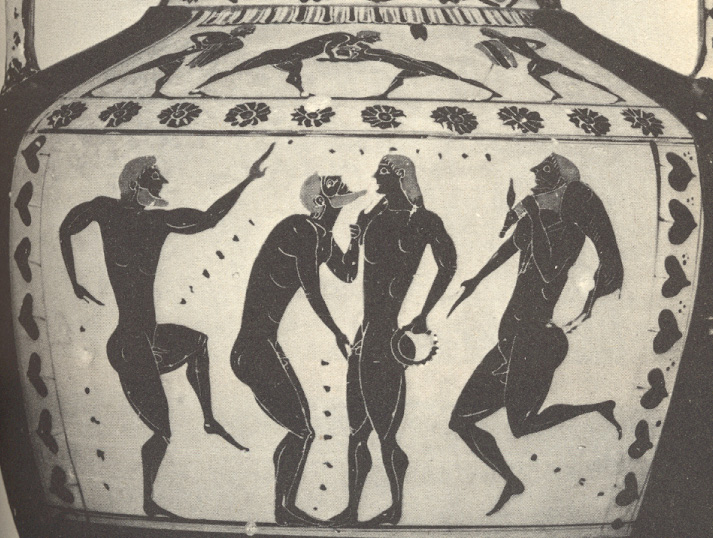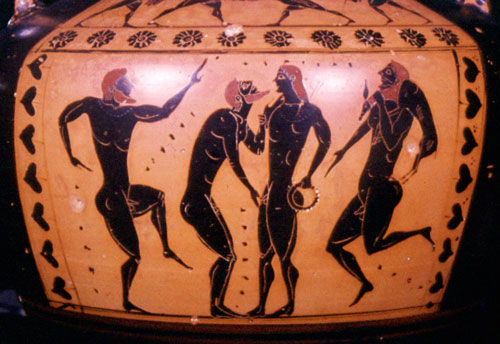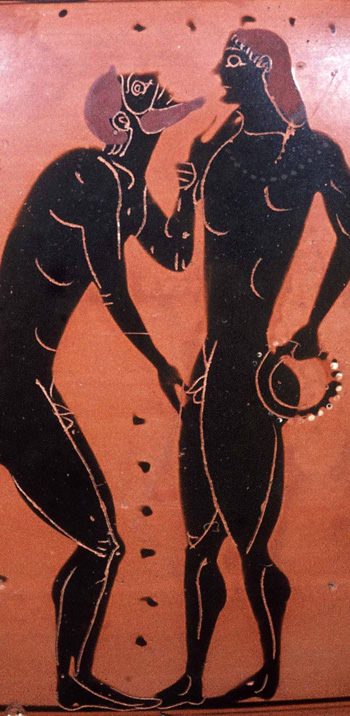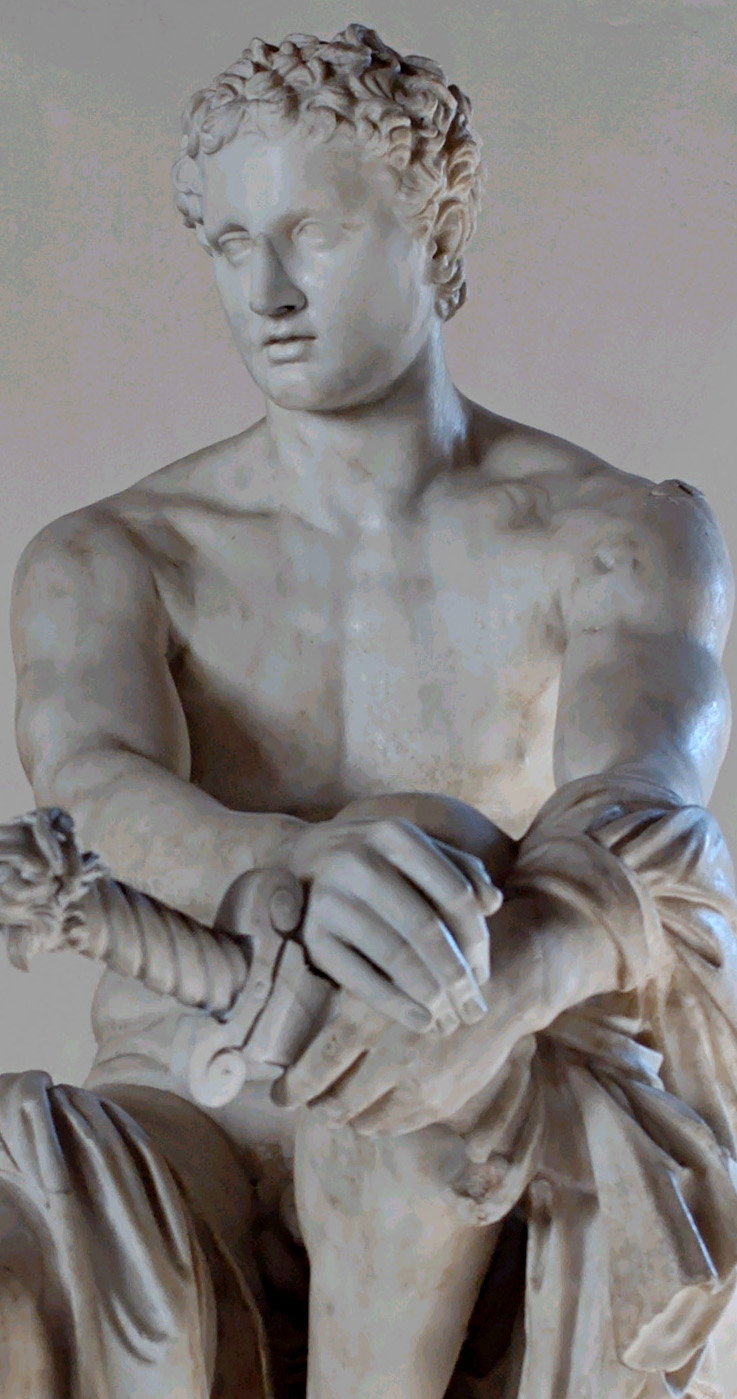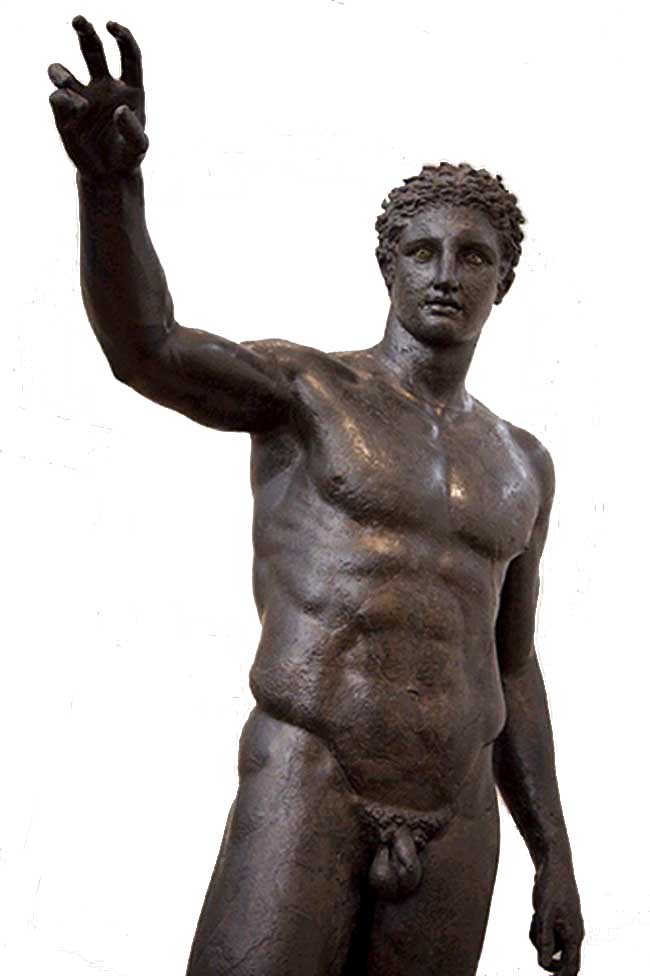














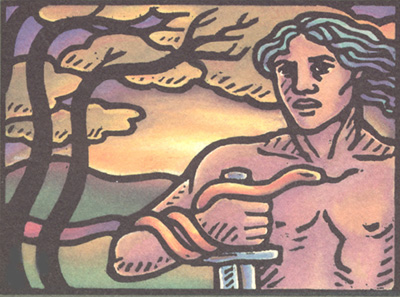


Prudence or the Pill
12-12-2010
Last month it was announced that an extraordinarily effective form of "pre-exposure prophylaxis" had been found for "males who do anal 'sex' with males" (MSM) -- against HIV.
It's a pill which combines two potent anti-virals already used to treat the disease.
When taken once per day, EVERY day, by those engaging in anal penetration, it was found to be 90% effective in preventing HIV infection.
Of course there are side-effects -- nausea, headache, liver damage -- and there may well be long-term toxicity.
But who cares about that when you can have your rectal cake and eat it too?
At the same time Pope Benedict allowed as how it might be okay for a male prostitute to use a condom as "this can be a first step in the direction of a moralization, a first assumption of responsibility."
Thus undercutting those in the scientific community, such as Dr Edward C Green and Dr John Richens, who'd steadfastly opposed condom promotion on very sound scientific bases:
And, you know, the evidence is entirely with Dr Green and his friends.
Those places in the world which have the highest rate of condom distribution -- "gay" communities worldwide, sub-Saharan Africa, Thailand, etc -- have by far the highest rates of HIV / AIDS.
Indeed, a recent report from Thailand, long hailed as a condom success story, revealed that infection rates there were steadily rising:
THAILAND: Struggling to sell safe sex
Thailand has the highest HIV prevalence in Southeast Asia
BANGKOK, 5 November 2010 (IRIN) - Health experts in Thailand say the odds are stacked against them in combating one of the highest HIV prevalence rates in Asia, with only 2 percent of the country's AIDS budget going on condoms.
"The belief is that it is the responsibility of the people who want to buy sex that they have to protect themselves," said Somyos Kittimankhong, a senior member of Thailand's Department of Disease Control's Anti-AIDS Division. "But when they get infected, then it's the government's responsibility. It's silly."
The only Southeast Asian country with an HIV prevalence of more than 1 percent, Thailand's earlier success at containing its epidemic has stagnated. With 481,770 HIV infected people already living in the kingdom, there are more than 10,000 new HIV infections every year, according to the UN's 2010 report from the General Assembly Special Session on HIV/AIDS.
The most-at-risk groups are injecting drug users and men who have sex with men (MSM), but this infection trend is broadening to include couples in committed relationships where condoms will never be the norm, said Steve Kraus, director of the UNAIDS regional Asia and Pacific support team.
Thailand's Epidemic Model has projected that more than one-third of new HIV infections in 2010 in Thailand will occur in long-term relationships and 7 percent from risky sex.
Despite these figures indicating that the epidemic is shifting to the general population, most of the government's US$775,000 condom marketing and distribution budget continues to target commercial sex workers.
"Thailand thinks there are enough condoms easily available and affordable in the market, and they don't see the need for providing them," Michael Hahn, UNAIDS country coordinator for Thailand, told IRIN. "This assumption is now under review as the country plans its national strategy for 2012 to 2016."
=======================
HIV/AIDS in Thailand
Total number of people living with HIV in 2010: 481,770
Cumulative AIDS infections in 2010: 1,148,117
Number of new AIDS deaths in 2010: 27,557
37 new cases a day
Half of all new HIV infections in Thailand are people under the age of 25.
74.8 percent of people in Thailand are optimistic that proper use of resources will stop the spread of HIV by 2015 (against 14.2 percent in Japan and 28 percent in the UK and US)
Source: UNAIDS, PDA
========================
Condom campaigns
Health officials are finding that the barriers to persuading people to have safe sex go beyond an insufficient budget for condoms; what is needed is a change in attitudes.
"Even though we have been doing condom promotion for many years - when we look at condom use, it is still too low," Somyos said.
Sixty percent of sexually active teenagers do not regularly use condoms, along with more than 50 percent of MSM and 40 percent of sex workers, according to the Department of Disease Control (DDC).
. . .
Oui Rattanawitoon, a 35-year-old public health student who has done HIV/AIDS outreach at the village level, said many young people he worked with asked him: "But if you are faithful, then why would you need a condom?"
"The attitude of Thai people now is quite free and sometimes they do not realize the concern about HIV," he said. "And though some teenagers do know [about HIV], they are not scared of [it]; they are scared of not having sex."
Even people running public health campaigns do not always follow their own advice - especially in the heat of the moment, Oui said. "I know what I should do, but sometimes it is difficult."
[emphases mine]
So let's see what we've got here:
You'll notice also that the response of "AIDS activists" in Thailand -- and elsewhere -- to the failure of condom campaigns to prevent HIV infection --
is to call for --
more condom campaigns!
Even though "AIDS-prevention health workers" themselves admit that they don't always use -- the condoms -- they're promoting!
Says "Oui Rattanawitoon, a 35-year-old public health student who has done HIV/AIDS outreach at the village level":
No kidding.
And please do see point #2 on the list above -- you know, break, tear, slip, incorrect and INCONSISTENT use, and disinhibition.
You see, folks, the problem is that inconsistent use is, epidemiologically speaking, almost as bad as NO use.
But wait -- there's more!
Because:
Those very same "AIDS activists" and "AIDS-prevention health workers" also warn, gravely, that if they don't get MORE MONEY for MORE CONDOM CAMPAIGNS, AIDS will move into the general population.
Despite the facts that:
And that's the TRUTH.
Nevertheless, the pope, in all his Catholic majesty, has decided to support condoms.
To be fair, he does say that the condom "is not really the way to deal with the evil of HIV infection. That can really lie only in a humanization of sexuality."
Which is correct.
I'd say a RE-humanization of sexuality, that is a HUMANE SEXUALITY of the sort practiced by the Greeks and which his predecessors worked long and hard to destroy starting some 1700 years ago.
But a call for humanization is fine.
And, the pope says
And he's right about that too.
Sexuality must always be an expression of Love.
Which has a positive effect on the whole of Man's being.
Nevertheless, and despite his talk of humanization etc, it was widely agreed that the pope was sending a message:
Condoms to prevent AIDS are okay.
Why, if he believes what he says about the "banalization of sexuality" -- which, in a world of rampant anal penetration, fist-fucking, cum-sucking, rimming, urine enemas, eating feces, and sado-masochism, is hardly the worst of it, but what would the pope know about that? -- in my experience, many priests are like children, both emotionally and experientially, when it comes to sexuality --
so they're not really fit to make judgments about sexuality.
Or to talk about banality when what they really need to talk about is -- evil.
So -- their judgments in these matters are just not good.
For example, I said that many priests were "like children";
Which may explain why so many priests "like children" -- to the point of sexually molesting them and destroying their lives -- while being protected by the Catholic hierarchy.
Nevertheless, why, if the pope believes what he says about the banalization of sex, would he okay condoms?
Because, according to the Times, the Church knew the pope's words would be greeted with "enthusiasm from clerics and health workers in Africa, where the AIDS problem is worst. The pope also considers the continent to be a major area of growth for the church."
In other words, the pope decided to give his blessing to condoms in order to protect and enhance the Church's popularity in Africa -- "a major area of growth for the church."
Despite the fact that condoms have NEVER succeeded in reducing HIV prevalence ANYWHERE in Africa.
Indeed, on this map, the countries with highest HIV prevalence are also the countries where condoms have been most stridently marketed and distributed:
So -- you can see South Africa is at 21.5%.
That's very high.
And very deadly.
Yet, it's lower than most "gay" communities in the affluent West, where condom campaigns were invented and aggressively pursued, and where, as a consequence, HIV prevalence even today tends to run at 25%.
Still, 21.5% is very very high.
And that's despite decades of condom campaigns.
Nevertheless, the pope has decided to endorse condoms; and his decision has been welcomed by "AIDS activists" in Africa, "a major area of growth for the church."
I wonder what ever happened to Fidelity?
You know, Fidelity.
Which the Ugandans promoted so successfully, thus radically reducing HIV prevalence in their country.
Fidelity.
The Ugandans promoted Fidelity all on their own, without any help from the Christianized, Analized, West -- and HIV prevalence plummeted.
Fidelity.
In Africa, Fidelity works.
Yet the pope wants to promote condoms -- a Western solution, conceived by and intended for Western "gay" males -- in Africa.
In the countries most heavily hit by AIDs, many Africans are involved in a form of promiscuity known as concurrency.
Do you think the pope will endorse concurrency too -- so as to lock in that "major area of growth for the church"?
I wouldn't be surprised.
And you know guys, at the rate it's going, The Man2Man Alliance may soon be the only organization on the planet which not only endorses Fidelity -- but means it -- too.
Now, there's a second piece to what we might call the Christian-AIDS connection, and that's the suppression of Manhood rituals.
According to The Washington Post:
Yeah.
And actually --
The Manhood rites weren't "primitive";
They were Manly in what was, to European Christian sensibilities, a very raunchy way.
That is to say, they CELEBRATED MANLINESS AND MALE SEXUALITY.
And they were also about circumcision, which to European Christians, notoriously anti-Semitic, is a Jewish rite.
So -- the pope's Catholic and Protestant predecessors, backed by European armies, suppressed the rituals.
And about a hundred years later, 25 million Africans died.
Now the pope, in an effort to boost his Church's popularity, is giving the nod to condoms and condom campaigns.
Which have failed -- everywhere.
Seems to me the Africans would be better off if the pope, and his anti-Man message, just butted out.
And, speaking of anti-Man --
Let's get back to the pill for a moment.
Here are some excerpts from the Times' article:
By DONALD G. McNEIL Jr.
Healthy gay men who took an anti-AIDS pill every day were well protected against contracting H.I.V. in a study suggesting that a new weapon against the epidemic has emerged.
In the study, published Tuesday by the New England Journal of Medicine, researchers found that the men taking Truvada, a common combination of two antiretroviral drugs, were 44 percent less likely to get infected with the virus that causes AIDS than an equal number taking a placebo.
But when only the men whose blood tests showed that they had taken their pill faithfully every day were considered, the pill was more than 90 percent effective, said Dr. Anthony S. Fauci, head of the infectious diseases division of the National Institutes of Health, which paid for the study along with the Bill and Melinda Gates Foundation.
. . .
The results are the best news in the AIDS field in years, even better than this summer's revelation that a vaginal microbicide protected 39 percent of all the women testing it and 54 percent of those who used it faithfully.
The protection, known as pre-exposure prophylaxis, is also the first new form available to men, especially men who cannot use condoms because they sell sex, are in danger of prison rape, are under pressure from partners or lose their inhibitions when drunk or high.
It "does not involve getting permission from the other partner, and that's important," said . . .
AIDS experts and the researchers issued several caveats about the study's limitations, emphasizing that it looked only at gay men and Truvada. More studies, now under way, are needed to see whether the results can be duplicated, whether other antiretroviral drugs will work and whether they will protect heterosexual men and women, prostitutes and drug users who share needles.
. . .
Some scientists fear that putting more people on the drugs will speed the evolution of drug-resistant strains, though that did not occur in the study.
. . .
Different regimens, like taking the pills not daily but only when sex is anticipated, also need testing.
Also, many men in the study failed to take all of their pills, and some clearly lied about it. For example, some who claimed to take them 50 percent or 90 percent of the time had little or no drug in their bloodstreams.
. . .
A major question now is who will pay for the drug.
In the United States, Truvada, made by Gilead Sciences, costs $12,000 to $14,000 a year. In very poor countries, generic versions cost as little as 40 cents a pill.
Hmmmm.
Let's see what we've got.
The new drug we're told, is the first available to "men who cannot use condoms because they sell sex, are in danger of prison rape, are under pressure from partners or lose their inhibitions when drunk or high."
Interesting.
So -- the drug will protect "guys" who are selling sex -- something which was also on the pope's mind;
those who are in danger of prison rape;
those who are being pressured by "partners" -- aka date rape; and
those who get drunk or high.
So what the drug does -- and is praised, Heaven help us all, for doing -- is
And isn't that just dandy?
You'll notice that Phill Wilson, president of the Black AIDS Institute, says the pill "does not involve getting permission from the other partner, and that's important."
Yes, it is, isn't it, especially if you want to keep males emasculated and effeminized and unable to control what's inserted into their rectums.
Phill Wilson, for those of you who don't know, is the Black "leader" who has resolutely REFUSED to talk to Chuck Tarver, author of Musings of a Black Gay Man into Frot, about non-anal alternatives.
He's refused to talk to Chuck for YEARS.
But there are alternatives.
The problem with those alternatives, from the point of view of "people" like Phill Wilson, is that they reject effeminization and pansexualism in favor of Manliness, Masculinity, Manhood, and Virtue.
Manly Virtue.
Let's talk about Manly Virtue for a moment.
Just recently I've been reading Xenophon -- the Athenian military man who became a close ally and confidant of the Spartans.
And specifically, I've been reading Xenophon's Symposium.
Now, I know this is going to get a little confusing to folks, but it's not that difficult.
Both Plato and Xenophon were students and friends of Sokrates.
Plato was born in 427 BC and died in 346 BC.
Xenophon was born probably in 428 BC and died somewhere around 350 BC.
So the guys were contemporaries.
Both of them wrote books which feature Sokrates as the main figure and which are called Symposium -- which is just Latin for the Greek word "symposion."
A symposion was an all-male dinner and/or drinking party.
Women could be present as servers or as entertainers -- but the guests were all male.
Here are some depictions of a symposion ca 480 - 470 BC.
They were discovered in 1968, in what had been a Greek city in Italy, in what's known as The Tomb of the Diver.
And The Tomb of the Diver is basically a rectangular box, like a coffin.
Its walls are limestone, and bear paintings of a symposion.
This is the inner lid of the tomb:
And then when we look at this schematic, we can see that the walls show us a scene from a symposion:
And it's very simple.
On the two long walls of the tomb we see six couches -- three per wall:
And as you can see, four of the couches hold male-male couples:
And then there are two couches each with just one Man alone:
Now, these same-sex or male-male couples are very conventional couples of their day, which, again, is thought to be somewhere between 480 and 470 BC.
And looking at this wall again
we can see that the guys in each couple seem to be about the same age.
One has a beard, and one doesn't.
And that's the way it's supposed to be.
But I want you to take note that the beardless guys are not children.
Nor are they young boys.
Going by their size and their musculature, they're physically mature guys.
Which they would have to be if they were going to go into battle.
Indeed, if you look at the guy on the left
his beard appears to be growing in.
So the age difference between these Men cannot be very great.
Was it unusual for a man who had a beard to have a boyfriend whose beard was growing in?
No, there's no reason to think so, because not only do we see it on this wall-painting, but in the Platonic dialogue known as the Protagoras, someone remarks to Sokrates that his beloved, Alkibiades, is developing a beard -- or actually has a beard:
Companion: I know that you have been in chase of the fair Alkibiades. I saw him the day before yesterday; and he had got a beard like a man -- and he is a man, as I may tell you in your ear. But I thought that he was still very charming.
Sokrates: What of his beard? Are you not of Homer's opinion, who says,
~translated by Jowett
So -- whatever the convention may have been, it was easy enough to get around it.
Now:
Here's a close-up of one of the pairs:
And they're very loving.
You can see that the bearded guy has his hand in the other guy's hair.
That's interesting because in the Phaedo, another Platonic dialogue written many years after this tomb was painted and presumably sealed, we're told that Sokrates liked to play with one of his pupil's hair.
So you have a sense of a society in which that sort of intimacy between Men is commonplace.
Now here's one of the two end walls of the tomb -- it pictures another same-sex couple arriving at the party, accompanied by a female flute player -- whom they had probably hired for the occasion.
The bearded guy is clothed, but his boyfriend or beloved is nude.
And these guys may be party-crashers -- that too happens in Plato, again in a dialogue written many many years after this tomb would have been sealed.
On the other end wall, there's a large jar of wine, garlanded, and a serving boy.
And he too is nude:
So, just as in the palaistra and gymnasion, male nudity -- Spartan nakedness -- is a commonplace.
Finally, let's look at the lid again:
And we see the diver -- he too is nude.
And he's thought to be the deceased -- diving into the sea of re-incarnation.
And note again that he's nude, and remember these lines from the great classicist Werner Jaeger:
Now: In the dialogue known as the Gorgias, Sokrates speaks of an afterlife in which the naked soul is examined -- by another naked soul -- the Judge.
So the idea of the soul being nude in the afterlife, for example, must have been around for a while.
And while you may think that I'm beating the drum of nudity a bit too often -- I'm not.
When we think of the afterlife, we think of people wearing robes.
The Greeks didn't.
For them, the afterlife, like much of life itself, was nude.
That's a very different conception from our own.
And obviously it has implications for the way they thought about the body and the body's appetites.
Now -- what I really want you to understand is that the male-male couple in this work of art:
And the male couples in this work of art:
And the couple in this work of art:
are all the same deal.
It's not that there was one group at the palaistra and another at the symposion and then another which went into battle.
They're all the same guys.
The same guys who trained at the palaistra and partied -- if you want to think of it that way -- at the symposion -- went into battle and fought and died together in defense of their city-state.
As I said, The Tomb of the Diver dates to somewhere between 480 and 470 BC.
And it was in a Greek city -- a Dorian Greek city by the way -- in Italy called Poseidonia -- Sacred to Poseidon.
And in 480 BC, while the Greeks in the Eastern Mediterranean were fighting the Persians, the Greeks in Italy fought and won a huge battle against the Carthaginians.
Was Poseidonia involved in that fight?
I don't know, but it's certainly possible, in which case the guys in this painting would have fought, most likely as hoplites, for their city and for the Greeks.
So: This is a culture of Martial Masculinity.
Of Manliness.
And of same-sex Love -- Eros.
And, as the great Swiss historian Jakob Burkhardt said, Agonal Drives -- these guys are competitive.
Even at the symposion, they play a game in which they compete at trying to toss the dregs in their wine cups into a target:
And they also talk and debate at the symposia.
And you could say that it's Agon-Palaistra, Eros-Symposion, Ares-Battlefield -- which we could say was Agon, Eros, Ares -- except that Eros was present at the palaistra and on the battlefield too.
Indeed, Eros is supposed to be on the battlefield -- to keep the Men brave and honorable.
Which is why the Spartans often prayed to Eros before going into battle.
But the truth is that all three are present in all three places.
The Palaistra is a place of Agon, of Eros, and of Ares.
And so is the battlefield.
Of course there are no for-real battles at the Symposion.
But it is a place of Agon and Eros -- and people talk about War / Ares a lot -- because it's a major part of their lives.
For most Men, it's the most important and most meaningful part of their lives.
Because it's the ultimate test, for them, of their Male Virtue.
And when we look at the books titled Symposium, we see that much of the discussion is about Virtue.
Virtue in War;
Virtue in Love.
Plato's Symposium is very high-falutin' -- each of the participants delivers a discourse on the nature of Eros or Love -- male-male Love.
And Plato's Symposium is without question one of the great works of Western literature.
Xenophon's Symposium is more down-to-earth.
Sokrates is present at both parties, and he speaks his mind.
But at Xenophon's Symposium there's also a dancing boy, a dancing girl, and a jester.
Ordinary entertainment.
So -- Plato was a philosopher, and his Symposium is philosophic.
Xenophon was a military man and a moralist.
It's clear that he wrote his Symposium after Plato's had been published, because he refers to Plato's, albeit obliquely, in his own.
But his Symposium is far more moralistic -- than philosophic.
Again, Xenophon is concerned with moral issues.
And much of the discussion in Xenophon's Symposium is about the moral issues involved in one male loving another.
And the context is that Callias, at whose home the symposion is held, is in love with Autolycus, a "boy" who's just been victorious in Pankration at the Panathenaic Games.
The pankration, according to the O J Todd, the translator, "was a severe athletic contest involving a combination of boxing and wrestling, and requiring on the part of the contestants unusual physique and condition. There were separate events open to men and to boys."
What that means is that there were just two age classes -- men and boys.
How old, then, would a boy victor be?
Well, according to Peter Levi, the great classicist who edited the Penguin edition of Pausanias' Description of Greece, since the onset of puberty came later in a place like ancient Greece than in our own overfed society, a boy victor was probably sixteen.
He couldn't have been much younger, obviously, because a larger boy is very likely to defeat a smaller boy in something like pankration.
And he couldn't have been much older because as soon as his beard started coming in, he'd be considered a Man -- or what they called a "New Man."
The Greeks did *not* have our contemporary concept of adolescence.
To them, there were boys; "youths of fighting age" -- guys aged 18-20; "New Men," aged 20-30; and Men.
So: Callias is a Man.
He's in love with Autolycus, who's a boy victor in pankration.
And who's probably about sixteen years old.
Here are some excerpts from Xenophon's Symposium:
It [the Symposion] was on the occasion of the horse-races at the greater Panathenaic games; Callias, Hipponicus' son, was enamoured, as it happened, of the boy Autolycus, and in honour of his victory in the pankration had brought him to see the spectacle. When the racing was over, Callias proceeded on his way to his house in the Peiraeus with Autolycus and the boy's father; Niceratus also was in his company.
. . .
Autolycus took a seat by his father's side; the others, of course, reclined.
A person who took note of the course of events would have come at once to the conclusion that beauty is in its essence something regal, especially when, as in the present case of Autolycus, its possessor joins with it modesty and sobriety.
And here are two Greek words that we need to consider.
The first is modesty or aidos (αιδος).
Aidos can mean modesty -- and respect -- and also a sense of shame -- it's also used sometimes in the sense of honor -- the sense of honor which prevents a Man from running away and deserting his comrades in battle.
And the second is the word which Todd has here translated as "sobriety," but which also means temperance, self-control, prudence, even chastity.
Like agon and areté, it's a key word among the Greeks, and it's sophrosyne (σωφροσυνη).
And sophrosyne is really important.
As you may remember, sophrosyne or self-control is one of the Five Divine Virtues, and it often appears in the middle of the list -- it's pivotal:
Piety
Courage
Self-Control
Justice
Wisdom
So -- self-control really matters.
Especially to a military man like Xenophon, who spent much of his life either at Sparta or nearby.
Because as we saw in The Secret Craft of Warriorhood, and according to classicist J E Lendon,
. . . Spartans were open to the possibility, radical in the fifth century [BC], that physical courage itself was a consequence of training, rather than inborn. "Man differs little from man by nature, but he is best who trains in the hardest school," Thucydides has a Spartan king say. It is probably from the Spartans that intellectuals of the fifth and fourth centuries got the idea that courage was a function of experience or a mixture of training and inborn quality, an idea elaborated in philosophy into the doctrine that courage was a function of knowledge. . . .
. . .
[O]ne thing that set the Spartans apart from the other Greeks was their belief that many noble excellences could be taught, and their public care to see to it that they were. At seven a Spartan boy was taken from his mother and raised in barracks, beneath the eyes of older boys. Boys were whipped to inculcate respect (aidos) and obedience; they went ill-clad to make them tough; and they were starved to make them resistant to hunger. They were schooled to silence and taught to look at the ground while walking to train them in the supreme Greek civic virtue of self-control (sophrosyne). The cruel [sic] Spartan regime was believed to make Spartans brave. In short, as a frantic Athenian admirer of Sparta put it, "more men are excellent [agathos, the Homeric term] from practice than from nature."
. . .
To the Spartans hoplite training was not a low techne, but rather training in the secret craft of warriorhood. . . .
Aidos and sophrosyne --
αιδος και σωφροσυνη --
Modesty and Self-control.
With that in mind, let's get back to Xenophon:
A person who took note of the course of events would have come at once to the conclusion that beauty is in its essence something regal, especially when, as in the present case of Autolycus, its possessor joins with it modesty and sophrosyne -- self-control.
For in the first place, just as the sudden glow of a light at night draws all eyes to itself, so now the beauty of Autolycus compelled every one to look at him. And again, there was not one of the onlookers who did not feel his soul strangely stirred by the boy; some of them grew quieter than before, others even assumed some kind of a pose.
Now it is true that all who are under the influence of any of the Gods seem well worth gazing at; but whereas those who are possessed of the other Gods have a tendency to be sterner of countenance, more terrifying of voice, and more vehement, those who are inspired by chaste Love [sophronos Erotos] [σωφρονος Ερωτο&sigmaf] have a more tender look, subdue their voices to more gentle tones, and assume a supremely noble bearing. Such was the demeanour of Callias at this time under the influence of Love; and therefore he was an object well worth the gaze of those initiated into the worship of this God.
So:
All of the onlookers -- who are all Men, remember -- feel compelled, because of his beauty, to look at Autolycus;
and doing so is for them a "soul-stirring" experience.
So -- right from the git-go, Xenophon associates Male Beauty -- and because Autolycus is a Victor in Pankration I think we can safely say that he's possessed of Brave Beauty -- that is, Male Beauty which is linked to Male Aggression -- aggression and the beauty of guys --
Right from the git-go, Xenophon associates the Brave Beauty of Aggressive Men -- with the soul.
To look at this exemplar of Brave Beauty is to feel one's "soul strangely stirred."
And ALL the Men at the symposion experience that feeling.
Now: Callias is in love with the boy.
And it's a Love inspired -- the Greek word for inspired is "en-theos" which actually means "full of the God" -- so it's a Love "in-Godded" -- by Eros.
Callias, says Xenophon, is "inspired by chaste or temperate or self-controlled Love" -- and the words in Greek are sophronos -- which is derived of course from sophrosyne -- and Erotos, Love -- in this case, a temperate, prudent, Love -- and entheoi -- full of the God.
So Callias is full of the temperate or prudent God of Love.
Love for another Male.
And that temperate and prudent Love of another Male gives Callias, says Xenophon, "a supremely noble bearing" -- and the word for noble here is eleutherios, which also means "free."
So -- this is quite a statement.
That a temperate and prudent Love for another Male, a Male Worthy of that Love, imparts nobility and freedom -- to the Lover -- in this case, Callias.
And please think about that, and compare and contrast it to the world in which you live, a world in which condoms and pills designed to prevent a disease spread through an ignoble act -- anal penetration, which was universally condemned by the Greeks -- and a base behavior -- promiscuity -- which was also condemned by the Greeks -- is not only front page news in your nation's paper of record, but is presented as not just "good news" -- but as "the best news" --
The Times:
Suppose instead the Times had had a front page article titled "Men who Love Men are rejecting anal and promiscuity."
And described that as "the best news in the AIDS field for years."
You see, HIV is transmitted by anal penetration.
And spread far and wide by promiscuity.
The pill just developed is meant, as we saw, to facilitate both acts.
To make them "safer."
Well, maybe you can make them "safer" for the body -- but THEY WILL NEVER BE SAFE, THEY WILL NEVER BE GOOD, FOR THE SOUL.
And that's what Sokrates proceeds to demonstrate.
The conversation turns to perfume, and the superiority of ordinary olive oil, with which guys used to anoint themselves at the palaistrai-gymnasia:
"That may do for young fellows," observed Lycon; "but what of us who no longer exercise in the gymnasia? What should be our distinguishing scent?"
"Nobility of soul, surely!" replied Socrates.
"And where may a person get this ointment?"
"Certainly not from the perfumers," said Socrates.
"But where, then?"
"Theognis has said:
'Good men teach good; society with bad
"Do you hear that, my son?" asked Lycon.
"Yes, indeed he does," said Socrates; "and he puts it into practice, too. At any rate, when he desired to become a prize-winner in the pankration, he availed himself of your help to discover the champions in that sport and associated with them; and so, if he desires to learn the ways of virtue, he will again with your help seek out the man who seems to him most proficient in this way of life and will associate with him."
Thereupon there was a chorus of voices. "Where will he find an instructor in this subject?" said one. Another maintained that it could not be taught at all. A third asserted that this could be learned if anything could.
At this point Sokrates says, That's a very serious discussion and we're not going to go there tonight.
But, they do.
First, there's some entertainment.
The dancing girl dances, and then,
At this point the [Syracusan dancing] boy performed a dance, eliciting from Socrates the remark, "Did you notice that, handsome as the boy is, he appears even handsomer in the poses of the dance than when he is at rest?"
And I included that quote because I want you to see that Sokrates is not a "prude" -- he's more than willing to comment on the physical attractiveness of a dancing boy.
BUT -- when it comes to the behavior of those in Love, he counsels Prudence -- Self-Control -- Temperance.
And he starts by acknowledging the power of the mighty God, Eros:
From Xenophon's Symposium:
Socrates now opened up another new topic for discussion. "Gentlemen," said he, "it is to be expected of us, is it not, when in the presence of a mighty deity that is coeval with the eternal Gods, yet youngest of them all in appearance, in magnitude encompassing the universe, but enthroned in the heart of man -- I mean Eros -- that we should not be unmindful of him, particularly in view of the fact that we are all of his following?
For I cannot name a time when I was not in love with some one, and I know that Charmides here has gained many lovers and has in some instances felt the passion himself; and Critobulus, though even yet the object of love, is already beginning to feel this passion for others.
So -- Sokrates and the other Men are in the presence of the mighty God Eros because Callias is in love with Autolycus.
Indeed, all the Men at the symposion, says Sokrates, are followers of Eros.
Meaning that they ALL have, throughout their lives, LOVED other MEN.
Sokrates:
That's a very clear statement -- isn't it -- of the ubiquity of Male Passion for other Males.
As my foreign friend says:
It is, rather, a Universal Phenomenon, especially strong among MASCULINE Men.
Male desire for other Men cannot be tied to a minority group -- like "gays."
It is rather a Ubiquitous and Universal Phenomenon, especially strong among MASCULINE Men.
A point which Sokrates proceeds to emphasize:
But as for you, Callias, all the city knows that you are in love with Autolycus, and so, I think, do a great many men from abroad. The reason for this is the fact that you are both sons of distinguished fathers and are yourselves in the public eye.
Now, I have always felt an admiration for your character, but at the present time I feel a much keener one, for I see that you are in love with a person who is not marked by dainty elegance nor wanton effeminacy, but shows to the world physical strength and stamina, virile courage and sobriety. Setting one's heart on such traits gives an insight into the lover's character.
So -- we can see that the love object, though a boy, has Manly qualities -- he fights in the Pankration, and "shows to the world physical strength and stamina, virile courage and sobriety."
And of course, "sobriety" is sophrosyne.
Physical strength and stamina, virile courage and sobriety --
these are all attributes of Masculinity and of what we call Brave Beauty, and, says Sokrates,
So -- the love object, the beloved, is a Victor in Pankration.
He's a FIGHTER.
MANLY and MASCULINE:
And his Manly Aggression is the source of his Brave Beauty.
Like I -- and Warrior NW -- said:
aggression and the beauty of guys
His beauty, then, is both physical and moral.
He's possessed of physical strength, stamina, VIRILE COURAGE, and --
SOBRIETY.
PRUDENCE.
PRUDENCE IS AN ATTRIBUTE OF MASCULINITY AND MANLINESS.
Promiscuity is NOT.
As Sokrates makes very clear:
Now, whether there is one Aphrodite [the Goddess of Love] or two, 'Heavenly' and 'Vulgar,' I do not know; for even Zeus, though considered one and the same, yet has many by-names. I do know, however, that in the case of Aphrodite there are separate altars and temples for the two, and also rituals, those of the 'Vulgar' Aphrodite excelling in looseness, those of the 'Heavenly' in chastity.
One might conjecture, also, that different types of love come from the different sources, carnal love from the 'Vulgar' Aphrodite, and from the 'Heavenly' spiritual love, love of friendship and of noble conduct. That is the sort of love, Callias, that seems to have you in its grip.
I infer this from the noble nature of the one you love and because I see that you include his father in your meetings with him. For the virtuous lover does not make any of these matters a secret from the father of his beloved."
"Marry," quoth Hermogenes, "you arouse my admiration in numerous ways, Socrates, but now more than ever, because in the very act of flattering Callias you are in fact educating him to conform to the ideal."
"True," he replied; "and to add to his pleasure, I wish to bear testimony to him that spiritual love is far superior to carnal."
Now, I have to interrupt Sokrates for a moment with this question -- when he says Spiritual Love, does he mean a Love without any sexual component?
No.
The consensus among scholars is that the Greeks accepted and welcomed sexual Love between males so long as it was EXCLUSIVE -- FAITHFUL -- and expressed through frottage -- NOT anal.
This is made crystal clear in one of Plato's Sokratic dialogues titled Gorgias.
In it, Sokrates debates three rhetoricians -- the very distinguished Gorgias of Leontinoi, and two of his students -- Polus and Callicles.
The rhetoricians taught that the pleasurable was the good.
That therefore, men should seek to maximize pleasure.
Which in turn let to a sort of "might makes right" argument -- in favor of learning how to manipulate the state and ultimately seize power.
Because the tyrant can indulge any and every whim -- as the Roman emperors eventually demonstrated.
But -- that's in the future.
At the time of the Gorgias, Rome was just a speck of a town in Italy, Athens and Sparta were vying for power in Greece, and most people thought Athens -- a great commercial center and thus a place of many pleasures -- would win.
To rule Athens, then, would be to sit at the top of the heap.
And it's that prospect which the rhetoricians were, sometimes quietly and sometimes not, dangling before their students.
In this section of the Gorgias, Sokrates is in heated debate with one of those students, Callicles -- who is most open in his pursuit of self-advantage:
Socrates. Come now, let me tell you another parable:
Consider if each of the two lives, the temperate and the licentious, might be described by imagining that each of the two men had a number of jars; the one man has his jars sound and full, one of wine, another of honey, and a third of milk, besides others filled with other things, and the sources which fill them are scanty and difficult, and he can only obtain them with a great deal of hard toil. Well, one man, when he has taken his fill, neither draws any more nor troubles himself a jot, but remains at ease on that score. The other, in like manner, can procure sources, though not without difficulty; but his vessels are leaky and unsound, and night and day he is compelled to fill them constantly, and if he pauses for a moment, he is in an agony of extreme distress. If such is the nature of each of the two lives, do you say that the licentious man has a happier one than the orderly? Do I not convince you that the opposite is the truth?
Callicles. You do not convince me, Socrates, for the one who has filled himself has no longer any pleasure left; and this, as I was just now saying, is the life of a stone: he has neither joy nor sorrow after he is once filled; but a pleasant life consists rather in the largest possible amount of inflow.
Soc. Well then, if the the inflow be large, must not that which runs away be of large amount also, and the holes for such outflow be of great size?
Cal. Certainly.
Soc. The life which you are now depicting is not that of a dead man,
or of a stone, but of a plover [a bird thought to drink and then to eject the liquid]; you mean that he is to be hungering and eating?
Cal. Yes.
Soc. And he is to be thirsting and drinking?
Cal. Yes, that is what I mean; he is to have all his desires about
him, and to be able to live happily in the gratification of them.
Soc. Capital, excellent; go on as you have begun, and have no shame; I, too, must disencumber myself of shame: and first, will you tell me whether you include itching and scratching, provided you have enough of them and pass your life in scratching, in your notion of happiness?
Cal. What a strange being you are, Socrates! a regular stump-orator.
Soc. That was the reason, Callicles, why I scared Polus and Gorgias,
until they were too modest to say what they thought; but you will
not be too modest and will not be scared, for you are such a manly fellow. And now, answer my question.
Cal. I answer, that even the scratcher would live pleasantly.
Soc. And if pleasantly, then also happily?
Cal. To be sure.
Soc. But what if the itching is not confined to the head? Shall I
pursue the question? And here, Callicles, I would have you consider
how you would reply if consequences are pressed upon you, especially
if in the last resort you are asked, whether the life of a male who is anally receptive is
not terrible, shameful, and wretched? Or would you venture to say, that they too are happy, if they only get enough of what they want?
Cal. Are you not ashamed, Socrates, of introducing such topics
into the argument?
Soc. Well, my fine friend, but am I the introducer of these
topics, or he who says without any qualification that all who feel
pleasure in whatever manner are happy, and who admits of no
distinction between good and bad pleasures? And I would still ask,
whether you say that pleasure and good are the same, or whether
there is some pleasure which is not a good?
~translated by Jowett and Lamb
So: Sokrates asks, "Is there some pleasure which is not a good?"
And the word for "male who is anally receptive" in the original Greek is kinaidos, that is, one who is anally passive, and/or who participates in anal penetration.
That is, an analist.
So it's very clear, in this ancient Greek culture of Manly Love, that promiscuity -- "the laborious prosecution of debauchery" -- and anal penetration -- "the life of a kinaidos is terrible, shameful, wretched" -- are denigrated and forbidden.
And that young Men, who are encouraged to have same-sex love affairs, are at the same time taught that anal and promiscuity are forbidden because they're unmanly, evil, and foul -- the very opposite of Virtuous.
And of Virtuous Virility.
So: when I say such things, I'm not coming from somewhere way out in left field.
I'm coming solidly rather from within the Western tradition, and in particular that of the Greeks.
Who extolled Love between Men -- but Love of a particular kind.
Love in the service of Virtue.
And that's what I would have you -- all of you -- experience.
Not sex in the service of debauchery.
But Love in the service of Virtue.
Because, as Sokrates says, pleasure must serve the good.
Not the other way around.
Sokrates:
Socrates: I will resume our argument from the beginning. Are the pleasant and the good the same thing? Not the same, as Callicles and I agreed. Is the pleasant thing to be done for the sake of the good, or the good for the sake of the pleasant? The pleasant for the sake of the good. And is that thing pleasant by whose advent we are pleased, and that thing good by whose presence we are good? Certainly. But further, both we and everything else that is good, are good by the advent of some virtue? In my view, this must be so Callicles. But surely the virtue of each thing, whether of an implement or of a body, or again of a soul or any live creature, does not arrive most properly by accident, but by an order or rightness or art that is apportioned to each. Is that so? I certainly agree. Then the virtue of each thing is a matter of regular and orderly arrangement? I at least should say so. Hence it is a certain order proper to each existent thing that by its advent in each makes it good? That is my view. So then a soul which has its own proper order is better than one which is unordered? Necessarily. But further, one that has order is orderly? Of course it will be. And the orderly one is temperate [self-controlled, prudent]? Most necessarily. So the temperate soul is good. For my part, I can find nothing to say in objection to this, Callicles; but if you can, do instruct me.
Cal. Proceed, good sir.
Soc. I say, then, that if the temperate soul is good, one that is in the opposite state to this sensible [or sound-minded = Greek: sophron] one is bad; and that, was the senseless and dissolute one. Certainly. And further, the sensible man will do what is fitting as regards both Gods and Men; he could not be sensible [or sound-minded] if he did what was unfitting. That must needs be so. And again, when he does what is fitting as regards Men, his actions will be just, and as regards the Gods, pious; and he who does what is just and pious must needs be a just and pious Man. That is so. And surely he must be brave also: for you know a sound or temperate mind is shown, not by pursuing and shunning what one ought not, but by shunning and pursuing what one ought, whether they be things or people or pleasures or pains, and by steadfastly persevering in one's duty; so that it follows of strict necessity, Callicles, that the temperate man, as shown in our exposition, being just and brave and pious, is the perfection of a good man; and that the good man does well and fairly whatever he does; and that he who does well is blessed and happy, while the wicked man or evil-doer is wretched. And this must be the man who is in an opposite case to the temperate, -- the licentious man whom you were commending.
So there is my account of the matter, and I say that this is the truth; and that, if this is true, anyone, as it seems, who desires to be happy must ensue and practise temperance, and flee from licentiousness, each of us as fast as his feet will carry him, and must contrive, if possible, to need no correction ; but if he have need of it, either himself or anyone belonging to him, either an individual or a city, then right must be applied and they must be corrected, if they are to be happy.
This, in my opinion, is the mark on which a man should fix his eyes throughout life; he should concentrate all his own and his city's efforts on this one business of providing a man who would be blessed with the needful justice and temperance; not letting one's desires go unrestrained and in one's attempts to satisfy them -- an interminable trouble -- leading the life of a robber. For neither to any of his fellow-men can such an one be dear, nor to God; since he cannot commune with any, and where there is no communion, there can be no friendship. And wise men tell us, Callicles, that Heaven and Earth and Gods and Men are held together by Communion and Friendship, by Orderliness, Temperance, and Justice; and that is the reason, my friend, why they call the whole of this world by the name of Order [Kosmos]; not of disorder or dissoluteness.
~translated by Lamb
Kosmos.
Kosmos = order.
But that's not all.
In ancient Greek, Kosmos also means good behavior -- and decency.
So, as is often the case with Plato and Sokrates, there are multiple layers of meaning in just one word.
And when Sokrates says, "that is the reason, my friend, why they call the whole of this world by the name of Kosmos," he's also saying that the world is about decency and good behavior.
That that's how the Universe works.
Kosmos = order, good behavior, decency
Sokrates then continues:
Now you, as it seems to me, do not give proper attention to this, for all your cleverness, but have failed to observe the great power of Geometrical Equality amongst both Gods and Men: you hold that self-advantage is what one ought to practise, because you neglect geometry. Very well : either we must refute this statement, that it is by the possession of justice and temperance that the happy are happy and by that of vice the wretched are wretched; or if is is true, we must investigate its consequences. Those former results, Callicles, must all follow, on
which you asked me if I was speaking in earnest when I said that a man must accuse himself or his son or his comrade if he do any wrong, and that this is what rhetoric must be used for; and what you supposed Polus [another rhetorician, who spoke earlier in the debate] to be conceding from shame is after all true -- that to do wrong is worse, in the same degree as it is fouler, than to suffer it, and that whoever means to be the right sort of rhetorician must really be just and well-informed of the ways of justice, which again Polus said that Gorgias was only ashamed into admitting.
If this is the case, let us consider what weight, if any, here is in the reproaches you cast upon me: is it fairly alleged or not that I am unable to stand up for myself or any of my friends and relations, or to deliver them from the sorest perils, but am exposed like an outcast to the whim of anyone who chooses to give me -- the dashing phrase is yours -- a box on the ear; or strip me of my substance or expel me from the city; or, worst of all, put me to death ; and that to be in such a case is the lowest depth of shame, as your account has it ?
But mine -- though it has been frequently stated already, there can be no objection to my stating it once again -- is this : I deny, Callicles, that to be wrongfully boxed on the ear is the deepest disgrace, or to have either my person cut or my purse; I hold that to strike or cut me or mine wrongfully is yet more of a disgrace and an evil, and likewise stealing and kidnapping and housebreaking, and in short any wrong whatsoever done to me or mine, are both worse and more shameful to the wrongdoer than to me the wronged.
All this, which has been made evident on the lines I have stated some way back in our foregoing discussion, is held firm and fastened --- if I may put it rather bluntly -- with reasons of steel and adamant
(so it would seem, at least, on the face of it) which you or somebody more gallant than yourself must undo, or else find you cannot make a right statement in terms other than I now use. For my story is ever
the same, that I cannot tell how the matter stands, and yet of all whom I have encountered, before as now, no one has been able to state it otherwise without making himself ridiculous.
So -- the pleasant must serve the good.
What that means for us -- and in an organization that puts forward a sexual act -- is that the sexual act must be in the service of Virtue.
And Virtue is, as I've repeatedly shown you, Manliness.
Sex -- in our case, Sex between Men -- must be Manly, and it must serve Manly Virtue.
To believe otherwise leads to analism.
As Sokrates has just proven.
If you don't understand that, go back to the beginning of the excerpt from the Gorgias, and re-read it.
Soc. But what if the itching is not confined to the head? Shall I
pursue the question? And here, Callicles, I would have you consider
how you would reply if consequences are pressed upon you, especially
if in the last resort you are asked, whether the life of a male who is anally receptive is
not terrible, shameful, and wretched? Or would you venture to say, that they too are happy, if they only get enough of what they want?
Cal. Are you not ashamed, Socrates, of introducing such topics
into the argument?
Soc. Well, my fine friend, but am I the introducer of these
topics, or he who says without any qualification that all who feel
pleasure in whatever manner are happy, and who admits of no
distinction between good and bad pleasures? And I would still ask,
whether you say that pleasure and good are the same, or whether
there is some pleasure which is not a good?
You'll notice that Callicles doesn't actually agree with Sokrates about the shitfaeries.
He instead answers Sokrates' question -- with a question.
Why?
Because Sokrates has him over a barrel.
Without a doubt, Callicles privately believes, just like any hedonist, that anal is fine.
Any pleasure is fine so long as you get away with it.
Thus the pill.
We won't question anal -- we'll just make it "safer."
But -- Callicles doesn't dare say to Sokrates -- anal is okay.
Because anal was proscribed.
Any buttboy who tells you different is lying.
Sokrates' words are clear.
Callicles' reaction is clear.
He's an ancient Greek -- and he doesn't dare defend anal.
If he could -- he would.
He would say it's good to stratch an itch -- and it's good to be a kinaidos -- to get fucked.
He doesn't dare.
Anal is forbidden.
And all of Callicles' argument therefore -- is undone.
And Sokrates -- having used the question of anal to defeat Callicles -- and make no mistake, this is the critical moment in the dialogue -- this is the hinge, this is the critical point --
Sokrates, having defeated Callicles on this crucial point, can then easily demonstrate that Virtue is the Good -- and that EVERYTHING A MAN DOES -- MUST SERVE VIRTUE.
Which is Order -- and Self-Control.
And, we can see that clearly when we leave Plato's account of Sokrates in the Gorgias, and return to Xenophon's memories of Sokrates at a symposion.
Here's Xenophon, and once again, the speaker is Sokrates:
For we all know that there is no converse worth the mention that does not comprise affection. Now affection on the part of those who feel admiration for character is commonly termed a pleasant and willing constraint; whereas many of those who have a merely physical concupiscence reprehend and detest the ways of those they love.
But suppose they are satisfied on both scores; yet the bloom of youth soon passes its prime, and as this disappears, affection also inevitably fades away as fast; but the soul becomes more and more lovable the longer it progresses toward wisdom.
Besides, in the enjoyment of physical beauty there is a point of surfeit, so that one cannot help feeling toward his favourite the same effect that he gets toward food by gratification of the appetite. But affection for the soul, being pure, is also less liable to satiety, though it does not follow, as one might suppose, that it is also less rich in the graces of Aphrodite; on the contrary, our prayer that the goddess will bestow her grace on our words and deeds is manifestly answered.
Now, no further argument is necessary to show that a soul verdant with the beauty of freeborn men and with a disposition that is reverent and noble, a soul that from the very first displays its leadership among its own fellows and is kindly withal, feels an admiration and an affection for the object of its love; but I will go on to prove the reasonableness of the position that such a lover will have his affection returned.
First, who could feel dislike for one by whom he knew himself to be regarded as the pattern of nobleness, and, in the next place, saw that he made his favourite's honour of more account than his own pleasure, and beside this felt assured that this affection would not be lessened under any circumstances, no matter whether he suffered some reverse or lost his comeliness through the ravages of illness?
Moreover, must not those who enjoy a mutual affection unavoidably take pleasure in looking into each other's faces, converse in amity, and trust and be trusted, and not only take thought each for the other but also take a common joy in prosperity and feel a common distress if some ill fortune befall, and live in happiness when their society is attended by sound health, but be much more constantly together if one or the other become ill, and be even more solicitous, each for the other, when absent than when present? Are not all these things marked by Aphrodite's grace? It is by conducting themselves thus that men continue mutually to love friendship and enjoy it clear down to old age.
. . .
I will now go on to show also that the union is servile when one's regard is for the body rather than when it is for the soul. For he who inculcates right speech and conduct would merit the honour given by Achilles to Cheiron and Phoenix; but the man who lusts only after the flesh would with good reason be treated like a mendicant; for he is always dogging the footsteps of his favourite, begging and beseeching the favour of one more kiss or some other caress.
Do not be surprised at my plain speaking; the wine helps to incite me, and the kind of Love [Eros] that ever dwells with me spurs me on to say what I think about its opposite.
For, to my way of thinking, the man whose attention is attracted only by his beloved's appearance is like one who has rented a farm; his aim is not to increase its value but to gain from it as much of a harvest as he can for himself. On the other hand, the man whose goal is friendship is more like one possessing a farm of his own; at any rate he utilizes all sources to enhance his loved one's worth.
Furthermore, the favourite who realizes that he who lavishes physical charms will be the lover's sovereign will in all likelihood be loose in his general conduct; but the one who feels that he cannot keep his lover faithful without nobility of character [kalokagathia] will more probably give heed to virtue [areté].
But the greatest blessing that befalls the man who yearns to render his favourite a good friend is the necessity of himself making virtue [areté] his habitual practice. For one cannot produce goodness [agathos] in his companion while his own conduct is evil, nor can he himself exhibit shamelessness and incontinence and at the same time render his beloved self-controlled and reverent.
. . .
So, in that little speech, Sokrates tells us that "the kind of Love" -- and it's Eros -- physical and romantic Love -- "that ever dwells with me spurs me on to say what I think about its opposite."
Which means that to Sokrates, True Eros is the product not of carnality but of spirituality.
That's difficult for us to understand, because in our culture there's a vast gap, a chasm, between the spiritual and physical / romantic Love.
Not for Sokrates.
He's intensely critical of a "vulgar" or low "Aphrodite" -- the Goddess of Love -- which results in mere carnality and looseness -- PROMISCUITY.
He attacks promiscuity and the desire for a quick lay -- over and over again.
He's relentless in his attack.
He points out that mere carnality doesn't lead anywhere -- that youthful beauty soon fades, and interest is lost:
Whereas a true spiritual union goes on forever.
Even if there's illness, or ill fortune, says Sokrates, the Lovers continue to Love each other, and enjoy that Love "clear down to old age."
Not so if all that's there is physical lust.
And you can see that in Polyamorous in Portland, in which one of our guys gets bamboozled and royally fucked-over by an analist who claims to be "Drunk on him," but who's really just looking for "sex" -- actually, anal penetration.
Which Sokrates, as we saw in the Gorgias, DESPISES.
Along with promiscuity.
When Sokrates says carnality in the male-male context, he means anal and promiscuity.
So -- the lover who's possessed of "kalokagathia" -- nobility and goodness -- will render his beloved "self-controlled and reverent."
And Sokrates keeps talking about areté -- which is, in this context, Manly Excellence.
If you don't believe me when I say that's what it means -- read the definition -- and follow the links within the definition.
By winning at pankration, Autolycus has already demonstrated Manly Excellence -- he's shown "to the world physical strength and stamina, virile courage and sobriety."
And remember that sobriety is sophrosyne -- temperance, self-control, prudence.
Now, if Callias is to be a true Lover, he must help complete Autolycus' education in areté -- in Manly Excellence -- by exhibiting that same Manly Excellence in his own character and deportment.
Do you understand?
The Greek ideal is of a Manly Love.
I know that one partner is supposed to be younger than the other, though as you saw in those tomb paintings, the difference in age is not necessarily great -- it can be slight:
So -- Autolycus may only be sixteen -- probably not younger -- but he's already demonstrated "physical strength and stamina, Manly courage and self-control" -- in the most difficult Fight Sport the Greeks knew -- Pankration, which was the equivalent of our mixed martial arts.
And remember that he Fought Nude:
Every Man at the symposion has seen Autolycus, who's said to be "regal" in his Manly beauty, Nude -- and Fighting.
They've seen him demonstrate what I've called Heroic Nude Testicular Masculinity.
Like this:
And guys, that's probably what he looked like in action.
Except as you know, if you've ever watched an MMA Fight, that the action is fast and furious, a blur of muscle, sweat, and blood.
In repose, Autolycus may well have looked like this:
This is a Boy -- he's beardless.
He's a Fighter -- he has the broad chest and strong legs and buttocks of a Fighter.
He's a Victor -- he's wearing a crown of leaves.
And he's carrying a jar of olive oil -- which was a prize in the Panathenaic Games.
And of course he's nude and his testicles are prominent.
Heroic Nude Testicular Masculinity.
Which Sokrates describes as "Physical Strength and Stamina, Virile Courage"-- and "Sobriety."
So, remember, this isn't just a question of looks -- as Sokrates keeps hammering home -- to his "regal" bearing Autolycus joins "modesty and sobriety" -- sophrosyne.
Now:
The talk comes round to the idea of an "army of lovers" -- an idea put forward in a famous speech in Plato's Symposium:
~ Plato, Symposium 179, translated by Boswell
But for Xenophon, this is a political issue.
Because that "army of lovers" has now become the Theban Sacred Band.
And Thebes is the enemy of Sparta.
And Xenophon, who adores Sparta and all things Spartan, detests the Thebans.
So -- in *Xenophon's* Symposium, "Sokrates" -- who sounds an awful lot like Xenophon himself in this instance -- attacks that idea:
My own view is that those who assign these posts in battle suggest thereby that they are suspicious that the objects of their love, if left by themselves, will not perform the duties of brave men.
In contrast to this, the Lacedaemonians, [the Spartans,] who hold that if a person so much as hints at a bodily desire he will never know true nobility and goodness of character, cause the objects of their love to be so consummately brave that even when arrayed with foreigners and even when not stationed in the same line with their lovers they just as surely feel ashamed to desert their comrades. For the goddess they worship is not Shamelessness but Modesty [aidos].
What Xenophon -- or Sokrates -- is here saying is that the Spartan agogé results in youths -- beloveds -- who are "so consummately brave" -- that you can station them anywhere -- next to their Lovers -- which it appears was usual -- or next to "foreigners" -- ew, yucky, from the Spartan point of view -- and they will still follow the Spartan creed of Never Retreat Never Surrender.
In other words, a Spartan youth of Fighting age doesn't need to be next to his Lover to Fight with a Fury inspired by a God -- such as Ares -- because the effect of what we might call Spartan Eros is to make them "ashamed to desert their comrades" -- whoever their comrades might be.
And that's because Spartan Eros was really intense.
As Lendon says:
Lendon: the "relationships were institutionalized, played a large role in the training of boys, and were thought to contribute to bravery in combat."
The Britannica: a system of male-male pair-bonding kept the normal hoplite bonds at a level of ferocious intensity.
Ferocious.
Intensity.
And dude, you will never get that from promiscuity or hooking-up.
It has to be done the way Sokrates says -- with that absolute Fidelity which is ultimately, a spiritual quality:
We could all come to one mind, I think, on the point I am trying to make, if we were to consider the question in this way: of two lads, the objects of the different types of love, which one would a person prefer to trust with his money, or his children, or to lay under the obligation of a favour? My own belief is that even the person whose love is founded on the loved one's physical beauty would in all these cases rather put his trust in him whose loveliness is of the spirit.
In your case, Callias, I deem it meet that you should thank Heaven [the Gods] for inspiring you with love [Eros] for Autolycus. For his ardour for glory [philotimos, Love of Honour] is manifest, inasmuch as he undergoes many toils [ponos -- hardship and toil] and many bodily discomforts to ensure his being proclaimed victor in the pankration.
Now if he were to believe that he is going not merely to shed lustre on himself and his father but also to acquire through his manly virtue [andragathia -- andros, Man, + agathos, Virtue = Andragathia, Manly Virtue] the ability to serve his friends and to exalt his country by setting up trophies of victory over its enemies, and for these reasons draw the admiring glances of all and be famous among both Greeks and barbarians, do you not suppose that he would esteem and honour highly any one whom he looked upon as the best partner in furthering these designs?
If, then, you would be in his good graces, you must try to find out what sort of knowledge it was that made Themistocles able to give Greece liberty; you must try to find out what kind of knowledge it was that gave Pericles the name of being his country's wisest counsellor; you must reflect, further, how it was that Solon by deep meditation established in his city laws of surpassing worth; you must search and find out what kind of practices it is that gives the Lacedaemonians [the Spartans] the reputation of being pre-eminent military commanders; for you are their proxenus [representative], and their foremost citizens are always being entertained at your house.
So -- Callias, the Lover of Autolycus, is the Spartan proxenus -- we might say consul -- in Athens -- that is, though an Athenian, he represents Spartan interests in Athens.
Which means that when a prominent Spartan comes to Athens, he at the very least visits Callias and most likely stays with him.
And Sokrates says, you should use your contacts, Callias, to learn more about what makes the Spartans so great in military matters and as commanders of Men -- and then pass that on to Autolycus, that he may put it to the use of his city -- Athens.
Because Autolycus, when possessed of Andragathia -- Manly Virtue, Manly Excellence -- can use it to his country's benefit.
So -- Autolycus is imbued with loveliness of spirit -- and Sokrates tells Callias that "you should thank the Gods for inspiring you with Eros for Autolycus."
Eros, then, is DIVINELY INSPIRED.
It's not a matter of carnality and lust.
It's DIVINE.
It comes from the Gods.
The Gods have caused Callias to Love Autolycus who, in his Struggle for Victory in the Pankration, has shown a Love of Honour which makes him willing to undergo hardship, toil, pain.
Pain is part of Fighting.
Pain is part of being a Man.
As Warrior NW said to me in an email:
Very Male. Muscles. Fight. Sweat. Blood...and Pain. Pain and the Will to Fight.
Man Balls.
These are Manly qualities -- as we saw in the excerpt from Lucian in The Secret Craft of Warriorhood, boy-athletes, through their training in Fight Sports such as Pankration, learn to be "used to hard work, to stand up to blows face to face, and not to yield through fear of injury" . . .
Lucian continues:
Once again, these are Manly qualities, and all part of the Love of Honor and Manly Virtue -- and Sokrates tells Callias that if he wants to be the Lover of a Man with such qualities -- he must display Manly Virtue also, a Virtue of the sort which will help educate his beloved to his Manly Life's task.
So -- what does all this literally ancient history have to do with Prudence and the Pill?
A LOT!
Just compare and contrast.
The Pill -- like EVERY STRATAGEM FOR DEALING WITH HIV INFECTION WHICH IS NOT PRIMARY BEHAVIOR CHANGE -- is a great big emasculating and effeminizing COP-OUT.
Look again at the list of "beneficiaries" which was in the Times:
Of course, we all know that the primary users of the pill will be affluent buttqueens and shitfairies, who can thus continue to evade their responsibility, moral and otherwise, for what has gone down in the "gay community" since 1975.
But, look at the list nevertheless:
"men who cannot use condoms because they sell sex"
Male prostitutes.
NO MAN SHOULD BE A PROSTITUTE.
And no Woman either.
"are in danger of prison rape"
Here, to be fair, the cop-out is on the part of the penal system.
"If you can't do the time, don't do the crime."
Fine.
But if you can't protect the prisoner -- let him go.
The US has the highest incarceration rate of any country in the world.
Man up US.
"are under pressure from partners"
That's called date rape.
It's a crime.
If you don't want to do anal and your partner "pressures" you -- it's rape.
You don't "treat rape" by forcing the party being raped to take a toxic pill.
YOU EMPOWER THE GUY TO SAY NO.
You encourage the guy to leave the abuser.
And you urge him to press charges.
"lose their inhibitions when drunk or high"
Again, a huge cop-out.
Substance abuse needs to be treated.
And the abuser needs to take responsibility for his life.
So -- we live in a society which has had twenty-nine years to face the reality of "MSM" HIV infection:
Well-educated, often affluent males knowingly infecting other males.
Through anal penetration.
A degenerate, degrading, debilitating and effeminizing act.
And we continue to enable it.
The pope -- just use condoms!
Our National Institutes of "Health," aided and abetted by the (Bill and Melinda) Gates Foundation -- just take a pill!
And then you can fuck away.
Forever.
You can be a whore, or just as promiscuous as a whore, you can be abused, you can be raped, you can get high and be a whore and whore around and be abused and raped.
But it's okay because there's a pill.
NO.
It's not okay.
The Greeks had a system of male-male Love -- EROS -- which was Divinely Inspired and served by its own distinctive institutions.
The Symposia and Palastrai, in Sparta the Phiditia and Agogé, the nude male religious-athletic festivals -- and the military.
There were no pills.
Just words.
And one of them was Sophrosyne -- Self-Control, Temperance, Prudence.
Men were told to seek out VIRTUE in other Men -- and to Love that Manly Virtue.
That's what they were told.
And there were no epidemics.
Just a lot of brilliance -- intellectual, physical, moral.
Spiritual.
I was going to title this post "Prudence and the Pill" -- thus making a pun on a 1968 movie of that name.
But really, and of course, the question is: Prudence or the Pill.
Or the condom.
Or whatever technological fix you think you need for what is nevertheless a MORAL problem.
We don't need a pill, and we've never needed a pill to reduce HIV transmission to zero.
No pill needed.
All the pill will do is continue the confinement of "gay"-identified males in their heterosexualized ghetto.
They don't need a ghetto, they don't need sexual orientation, they don't need "gay" marriage or "gays" in the military.
They need only to be Men.
And that's all you need too.
To be a Man.
Bill Weintraub
December 12, 2010
© All material Copyright 2010 by Bill Weintraub. All rights reserved.
and AND
Warriors Speak is presented by The Man2Man Alliance, an organization of men into
Frot
To learn more about Frot, ck out What's Hot About Frot
Or visit our FAQs page.
© All material on this site Copyright 2001 - 2011 by Bill Weintraub. All rights reserved.
Another huge problem with alternatives such as mutual masturbation and Frot is that they're -- FREE!
They're not a drug or device that someone can make money off of.
They're completely natural behaviors -- no "safer sex counselor" desired or required -- and they need no infrastructure.
No fancy lubes -- no nothin'.
As I like to say, Just two hard dicks and a smile.
And you're off and running.
And no one's interested in that -- because, again, there's no money in it.
And, I have no doubt, because it's Masculine.
The problem with the classically phallic forms of male-male is that they reject effeminization and pansexualism in favor of Manliness, Masculinity, Manhood, and Manly Virtue.
Here we have a vase painting which tells a little story:
If you look at the top of the vase, you see two boys fighting at a competition:
And in the panel below, you see the victor -- he has a wreath in his hand, which indicates he's the victor -- and you see him being courted by three Men:
One of whom is gesturing at his genitals:
And guys, these are all cultural messages.
The boy, by his victory, has demonstrated "to the world physical strength and stamina, virile courage and sobriety."
The Man is demonstrating his own strength of character by his interest in this boy.
Who's Manly.
Not effeminate, as Sokrates says, but Virile.
And as befits the courting of a ManBoy -- to use Warrior NW's word -- the Man is gesturing towards the source of the boy's Manliness -- his genitals.
The boy stands quietly -- and in so doing, demonstates sophrosyne:
Self-control.
It isn't enough to possess physical beauty.
To be Loved, you must have Moral Beauty as well.
Brave Beauty.
"I know what I should do, but sometimes it is difficult"
[T]he sheer fixation on the condom implies a banalization of sexuality, which, after all, is precisely the dangerous source of the attitude of no longer seeing sexuality as the expression of love, but only a sort of drug that people administer to themselves. This is why the fight against the banalization of sexuality is also a part of the struggle to ensure that sexuality is treated as a positive value and to enable it to have a positive effect on the whole of man's being.

fist-fucking
banal?
or
evil?

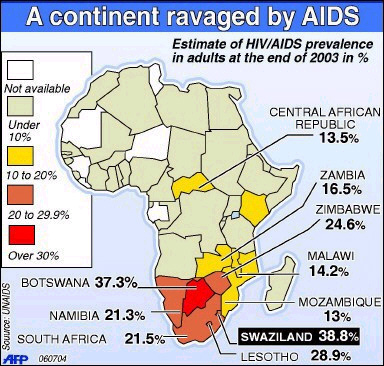

AIDS in America
A second key factor helping the virus spread through southern Africa is low rates of circumcision. Before European colonialists arrived, most tribes in the region removed the foreskins of teenage boys during manhood rituals. Those rites, which were discouraged by missionaries and other Westerners who regarded them as primitive, have gradually declined as the region rapidly modernized.
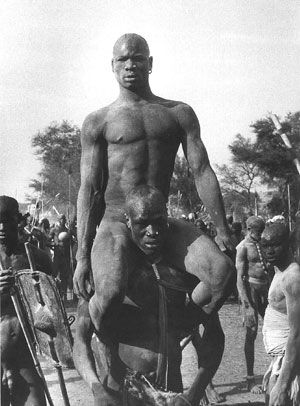
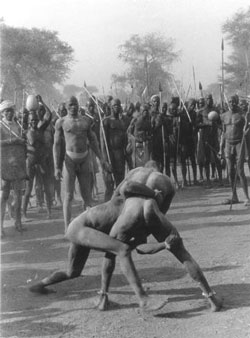


Daily Pill Greatly Lowers AIDS Risk, Study Finds
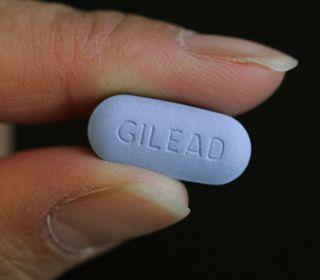

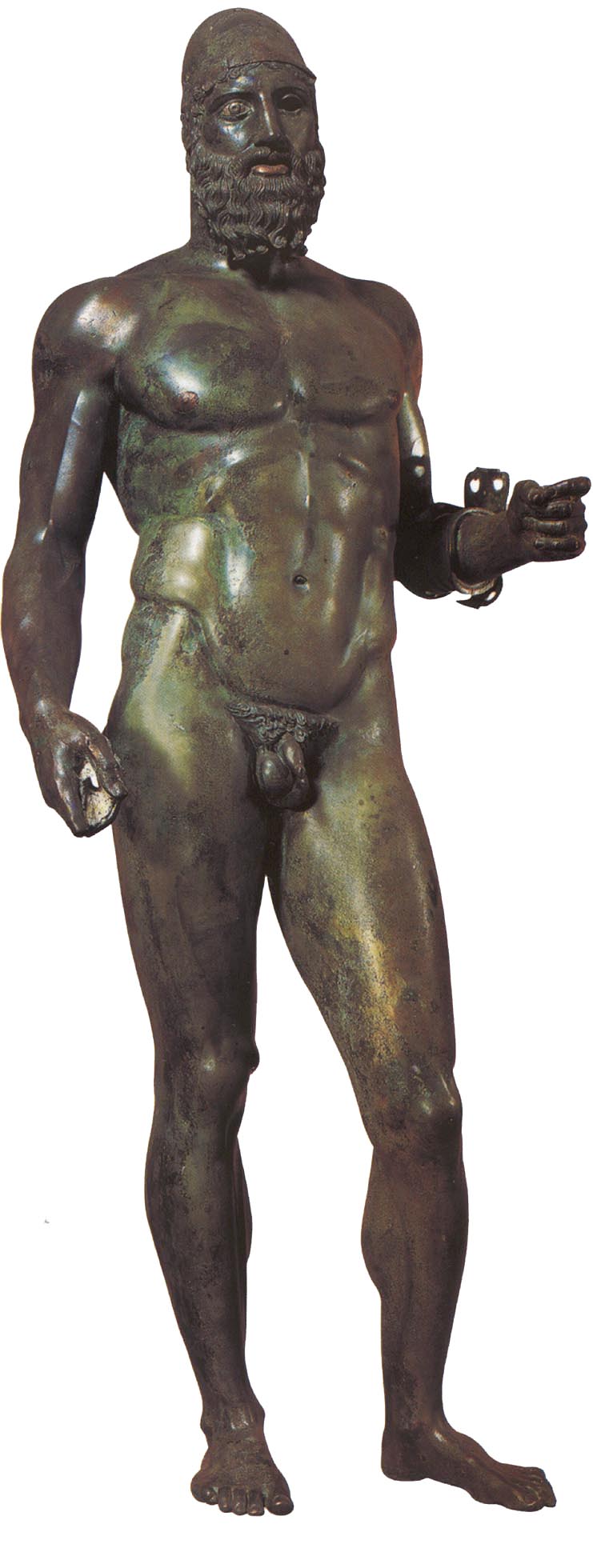
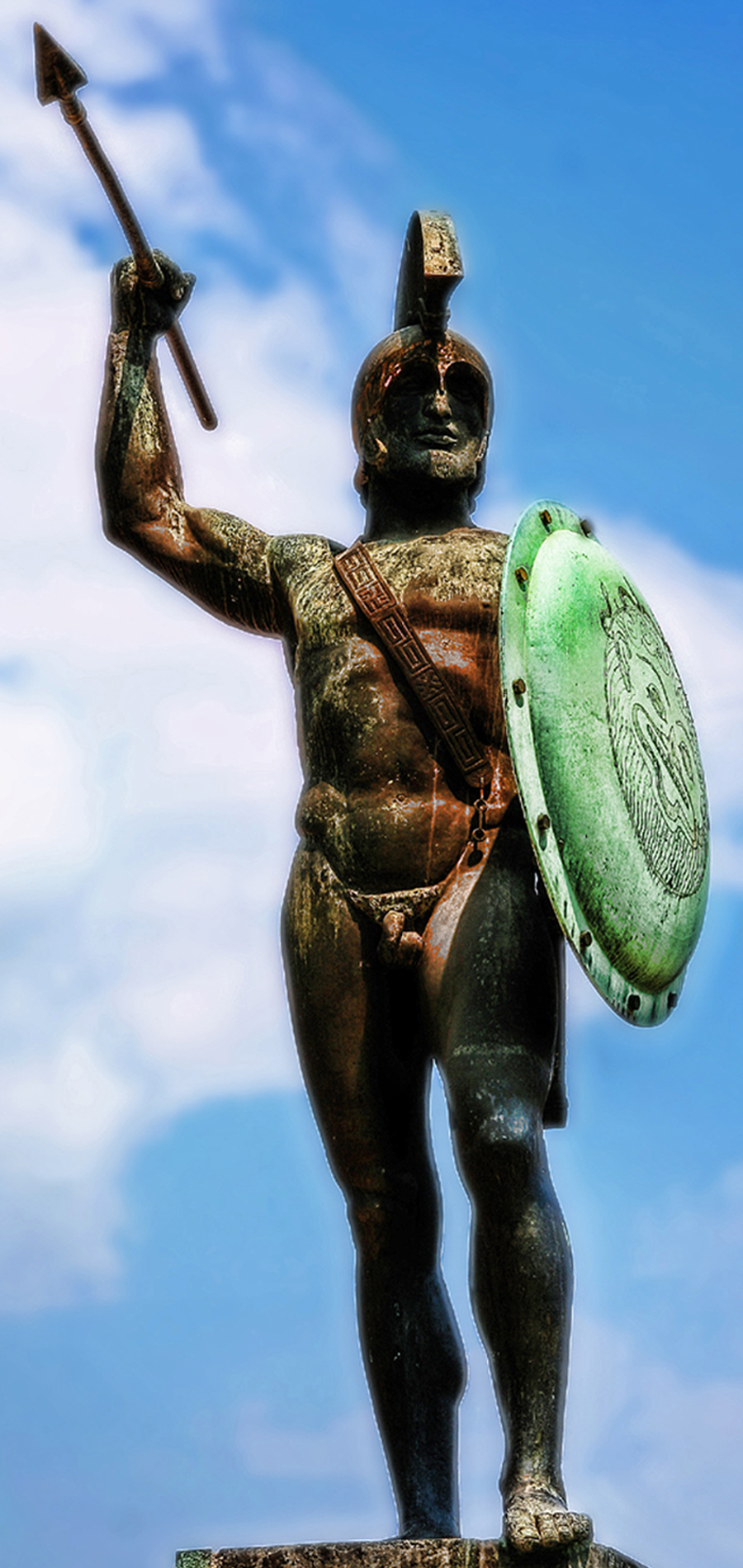
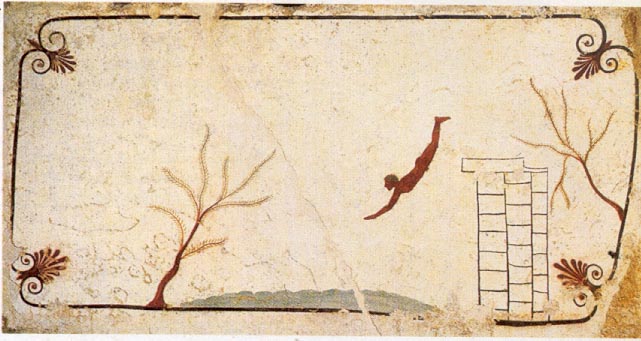
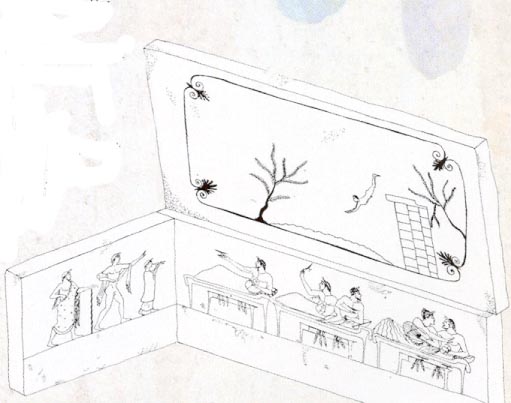


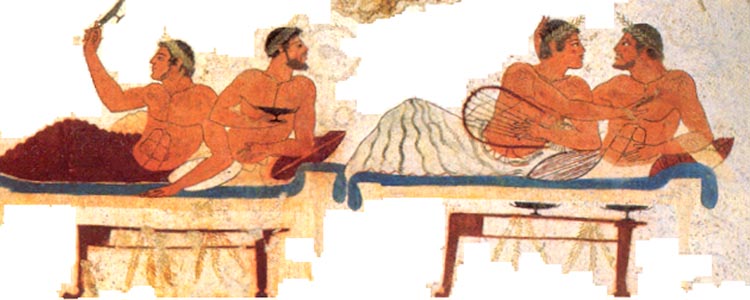
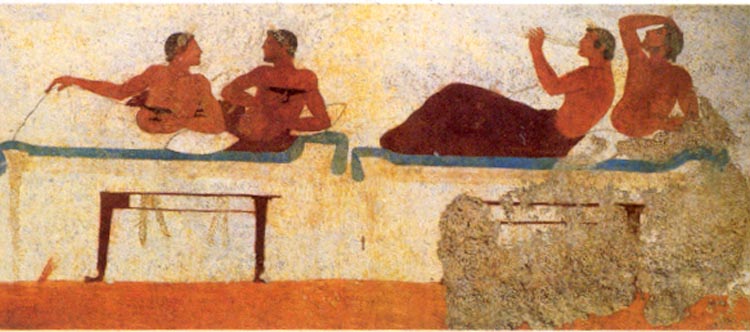
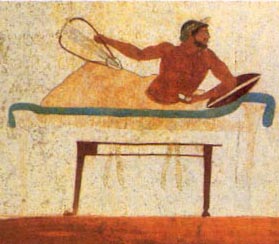
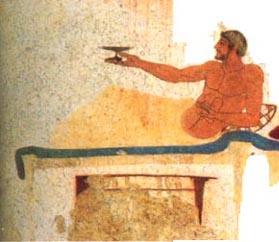

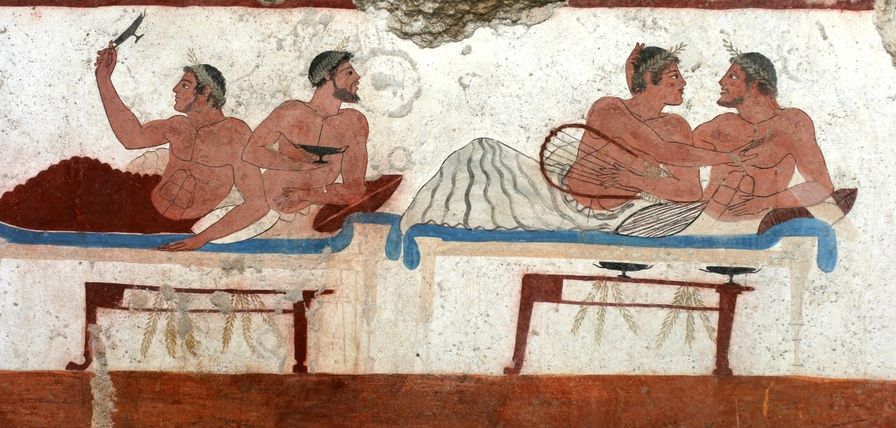


Youth is most charming when the beard first appears.
And that is now the charm of Alkibiades.
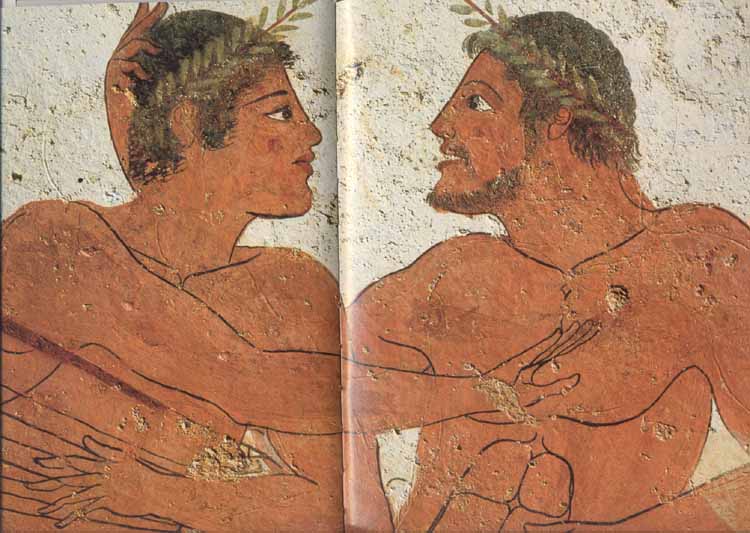
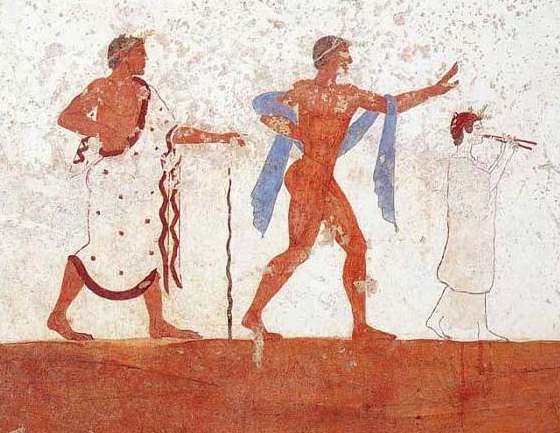
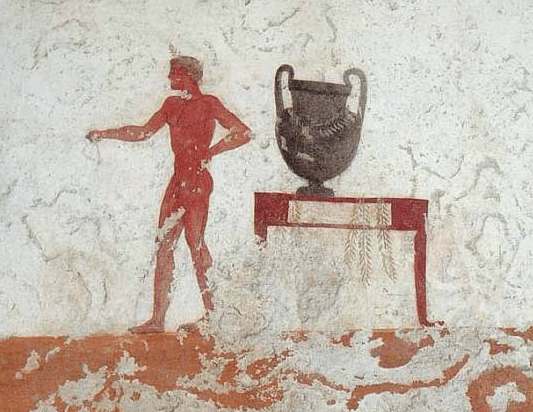

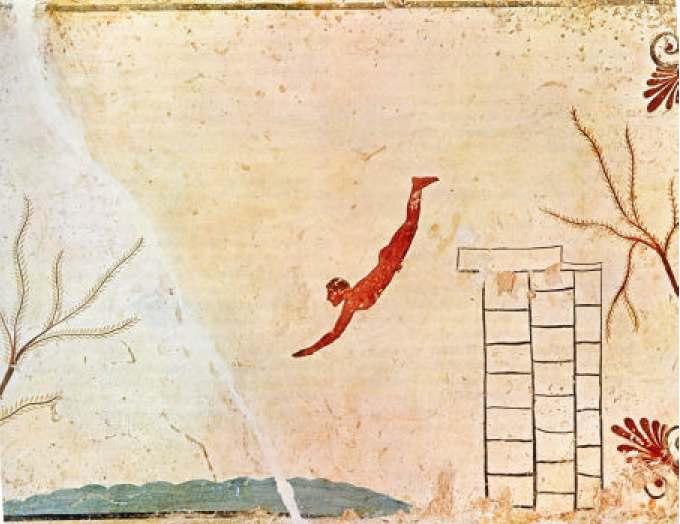
There was a profound symbolic resemblance between Socrates' conversations and the act of stripping to be examined by the doctor or trainer before entering the ring for a contest.
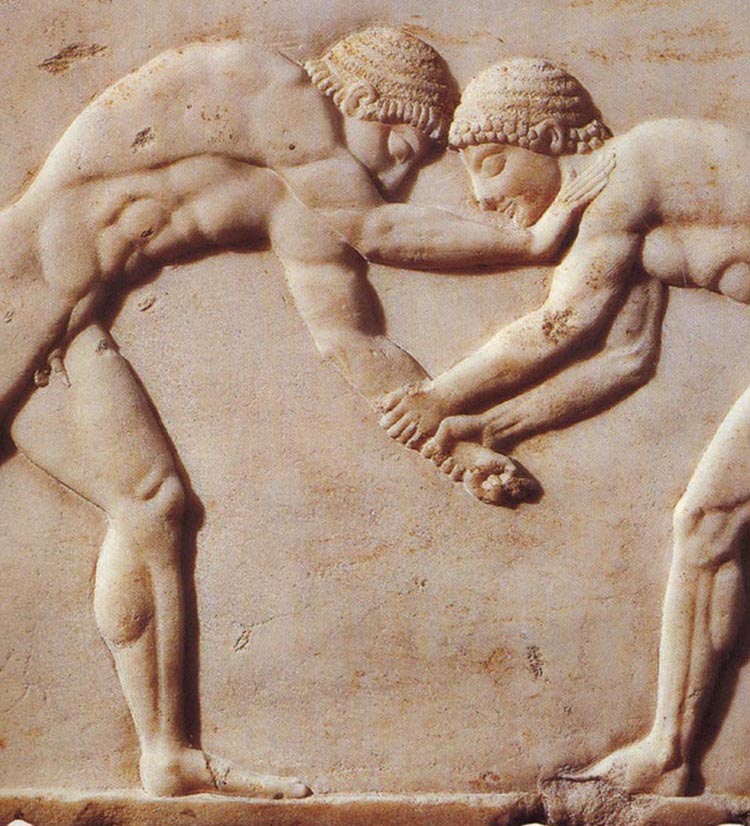

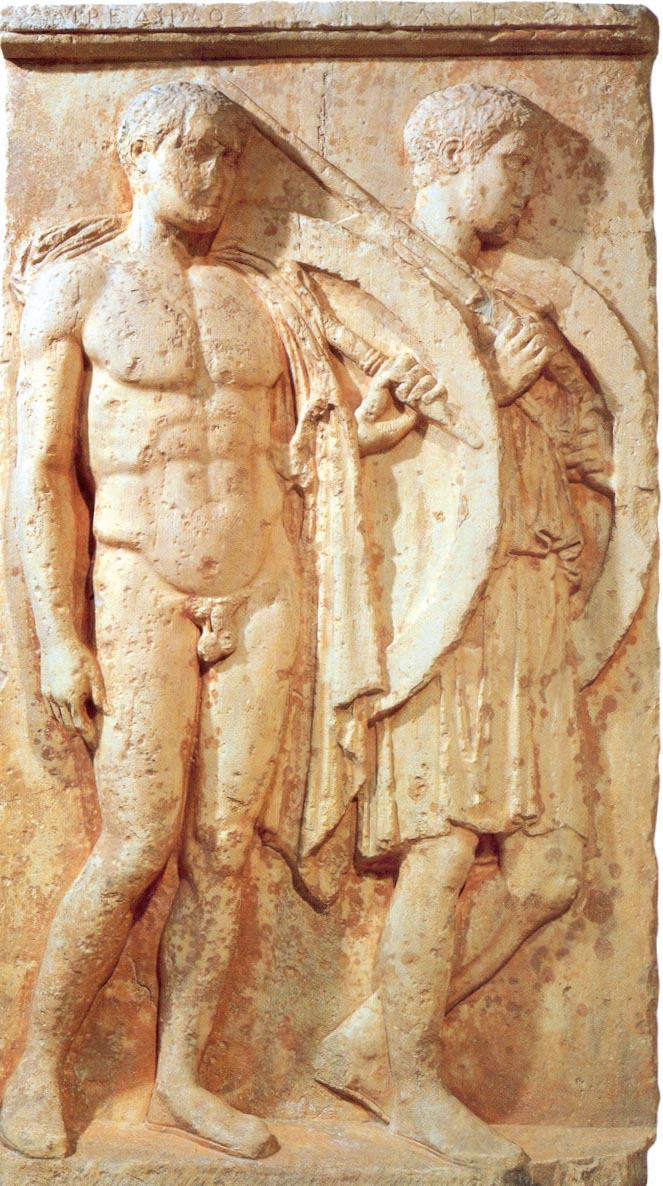





The results are the best news in the AIDS field in years. . .
Will but corrupt the good mind that you had.' "
For I cannot name a time when I was not in love with some one
Male desire for other Men cannot be tied to a minority group.
Setting one's heart on such traits gives an insight into the lover's character.

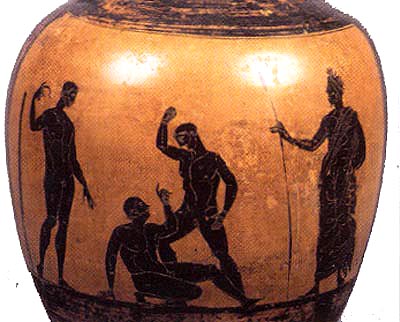
in the enjoyment of physical beauty there is a point of surfeit, so that one cannot help feeling toward his favourite the same effect that he gets toward food by gratification of the appetite.
But affection for the soul, being pure, is also less liable to satiety, though it does not follow, as one might suppose, that it is also less rich in the graces of Aphrodite; on the contrary, our prayer that the Goddess will bestow her grace on our words and deeds is manifestly answered.

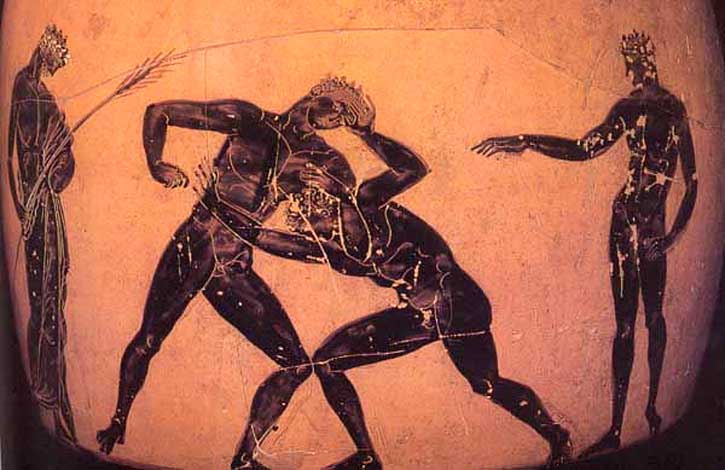
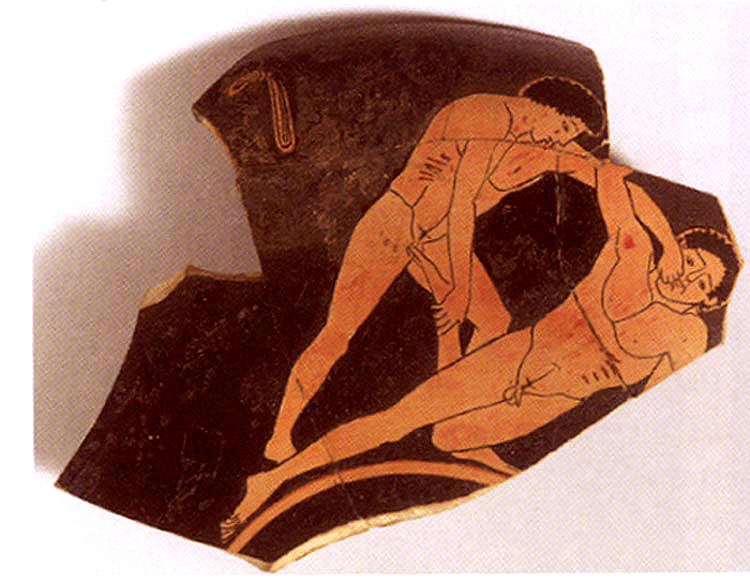

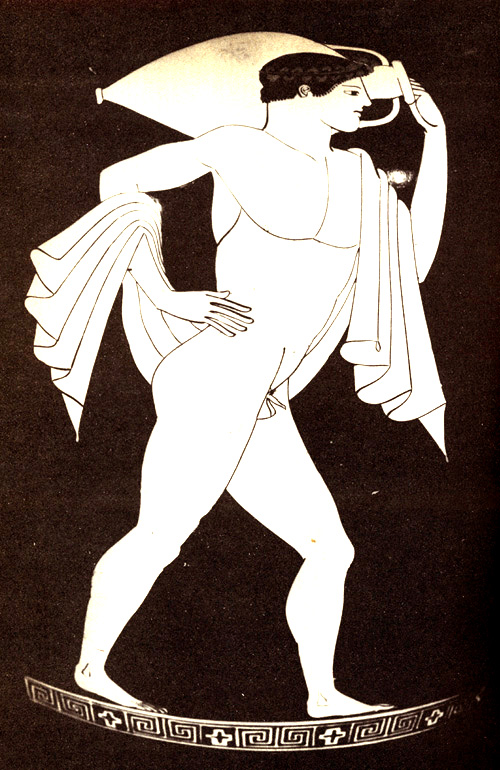
A Boy Victor in the Panathenaic Games
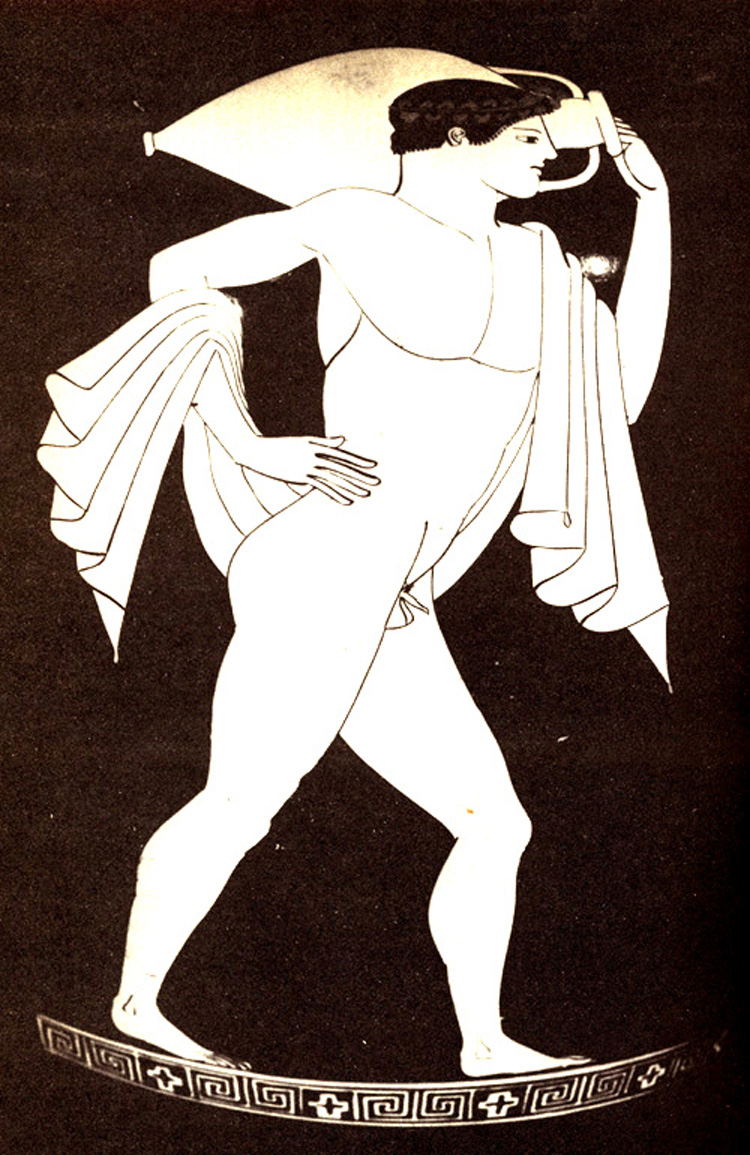
if we could somehow contrive to have a city or an army composed of lovers and those they loved, they could not be better citizens of their country than by thus refraining from all that is base in a mutual rivalry for honor; and such men as these, when fighting side by side, one might almost consider able to make a little band victorious over all the world. For a man in love would surely choose to have all the rest of the host rather than the one he loves see him forsaking his station, or flinging away his arms; sooner than this, he would prefer to die many deaths: while, as for leaving the one he loves in the lurch, or not succoring him in peril, no man is such a craven that the influence of Love [Eros] cannot inspire him with a courage that makes him equal to the bravest born; and without doubt what Homer calls a "fury inspired" by a God [Ares] in certain heroes is the effect produced on lovers by Love's peculiar power. Moreover, only such as are in love will consent to die for others.
[The Theban use of] such relationships between men as a font of military excellence is a transparent borrowing from Sparta, where such relationships were institutionalized, played a large role in the training of boys, and were thought to contribute to bravery in combat. At Sparta lover and beloved stood beside each other in the hoplite line; before battle the Spartans sacrificed to Eros, to love.
Here's a good pic.



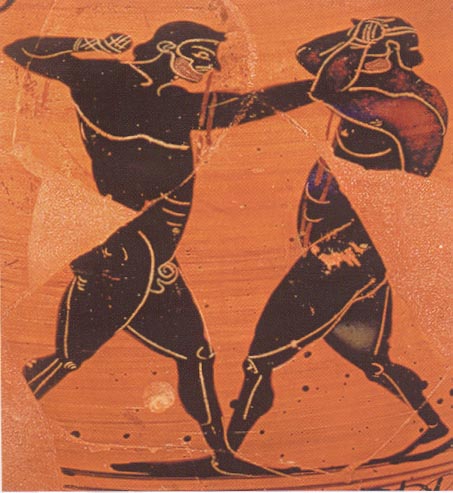
They are not learning useless skills but they get the one thing which is the first and most important thing in life: through this training their bodies become stronger and capable of enduring pain.
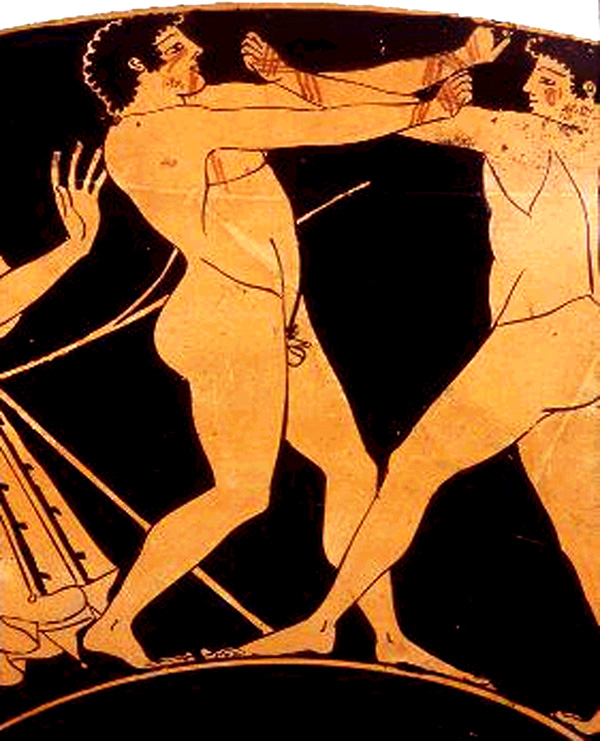
men who cannot use condoms because they sell sex, are in danger of prison rape, are under pressure from partners or lose their inhibitions when drunk or high.









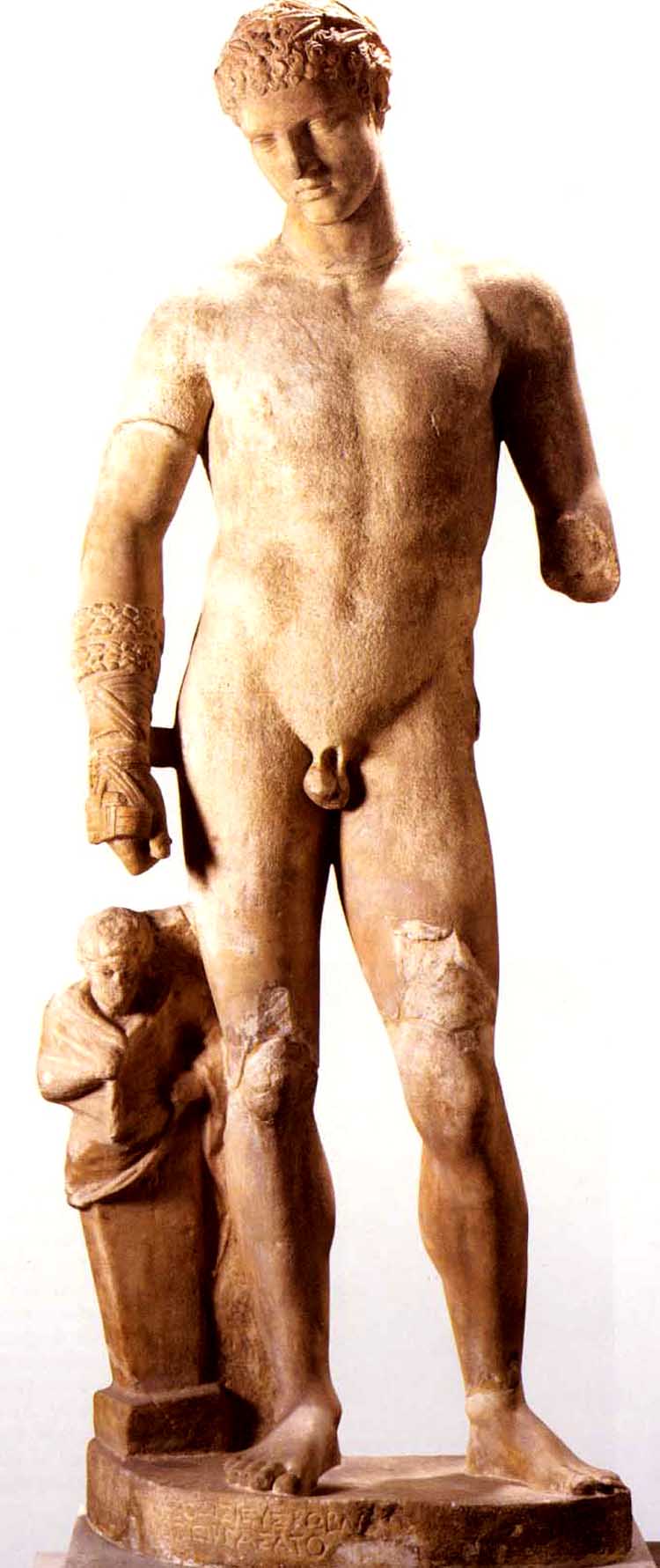
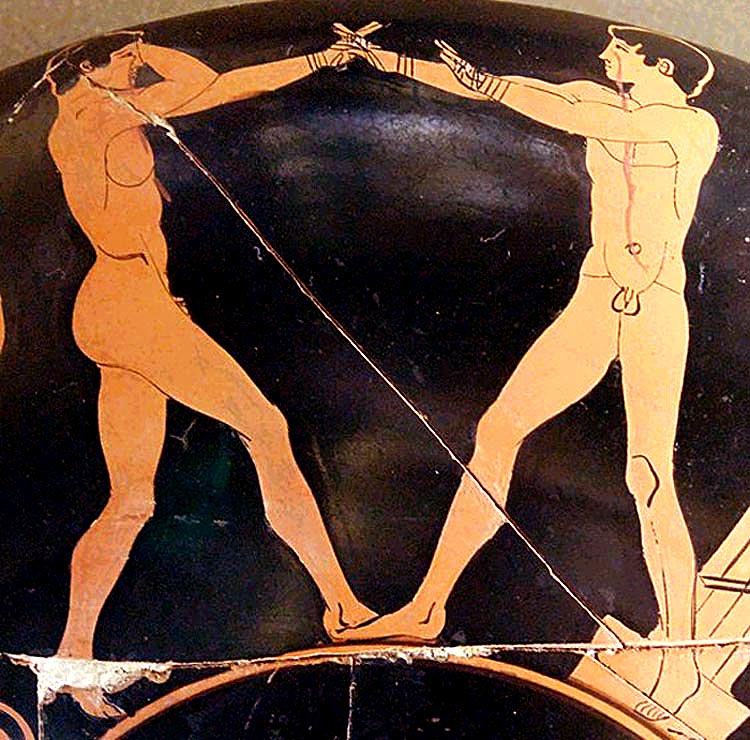







who reject anal penetration, promiscuity, and effeminacy
among men who have sex with men

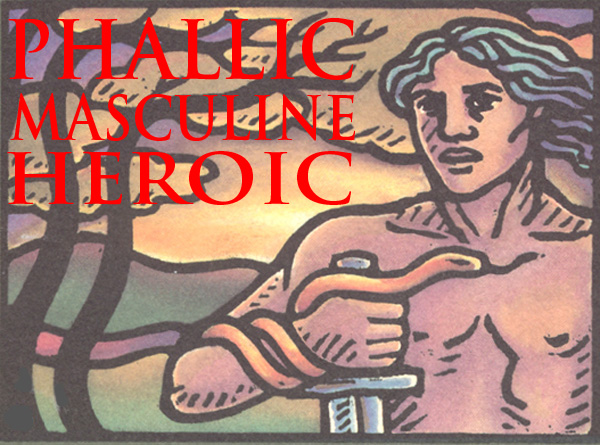






| Heroes Site Guide | Toward a New Concept of M2M | What Sex Is | In Search of an Heroic Friend | Masculinity and Spirit |
| Jocks and Cocks |
Gilgamesh | The Greeks | Hoplites! | The Warrior Bond | Nude Combat | Phallic, Masculine, Heroic | Reading |
| Heroic Homosex Home | Cockrub Warriors Home | Heroes Home | Story of Bill and Brett Home | Frot Club Home |
| Definitions | FAQs | Join Us | Contact Us | Tell Your Story |













